Humanities & Social Sciences
Makerere Marks 40 Years of Cultural and Academic Cooperation with the Italian Ethnographic Mission
Published
8 months agoon
By
Jane Anyango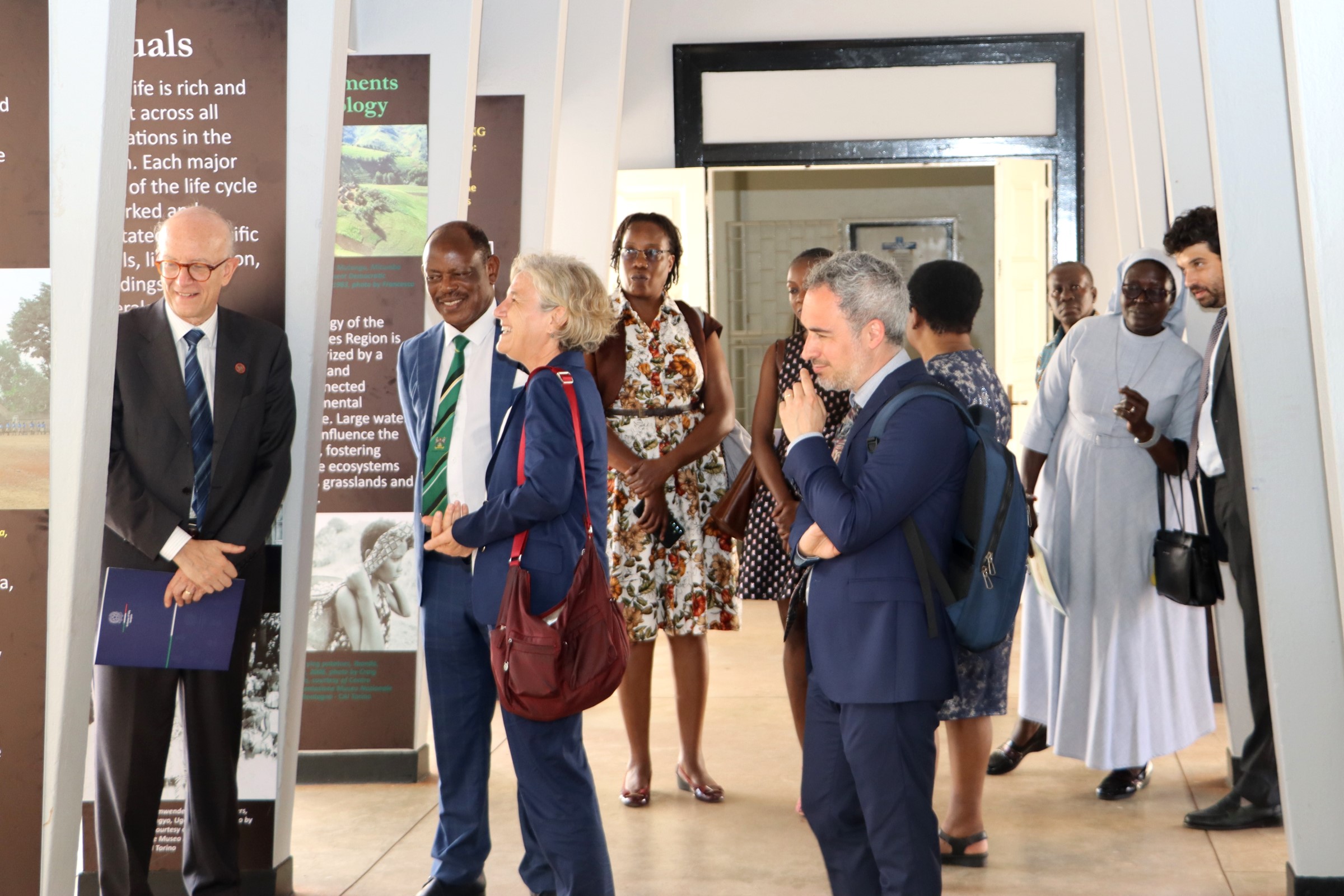
Minister calls on universities to Mainstream Cultural Studies
Kampala, Uganda | May 16, 2025 — Makerere University, in collaboration with the University of Turin and the Italian Embassy in Kampala, marked four decades of academic and cultural partnership with a landmark photographic exhibition titled “Connecting Cultures: The Italian Ethnological Mission in the Great Lakes Region.”
The exhibition, hosted at the College of Humanities and Social Sciences (CHUSS), visually chronicles over 40 years of Italian ethnographic research in Equatorial Africa. Since its establishment in 1979, the Italian Ethnological Mission—anchored at the University of Turin—has documented and studied the social and cultural fabric of the Great Lakes Region, including Uganda, the Democratic Republic of Congo, Rwanda, Burundi, and Tanzania.
Funded by the Italian Ministry of Foreign Affairs and International Cooperation and supported by the Erasmus+ programme, the mission focuses on topics including refugee integration, traditional knowledge, oral history, and cultural continuity.
The exhibition aims to share the Mission’s ethnographic insights, celebrate academic cooperation between Uganda and Italy, and highlight the deep interwoven cultural legacies of the region’s communities.
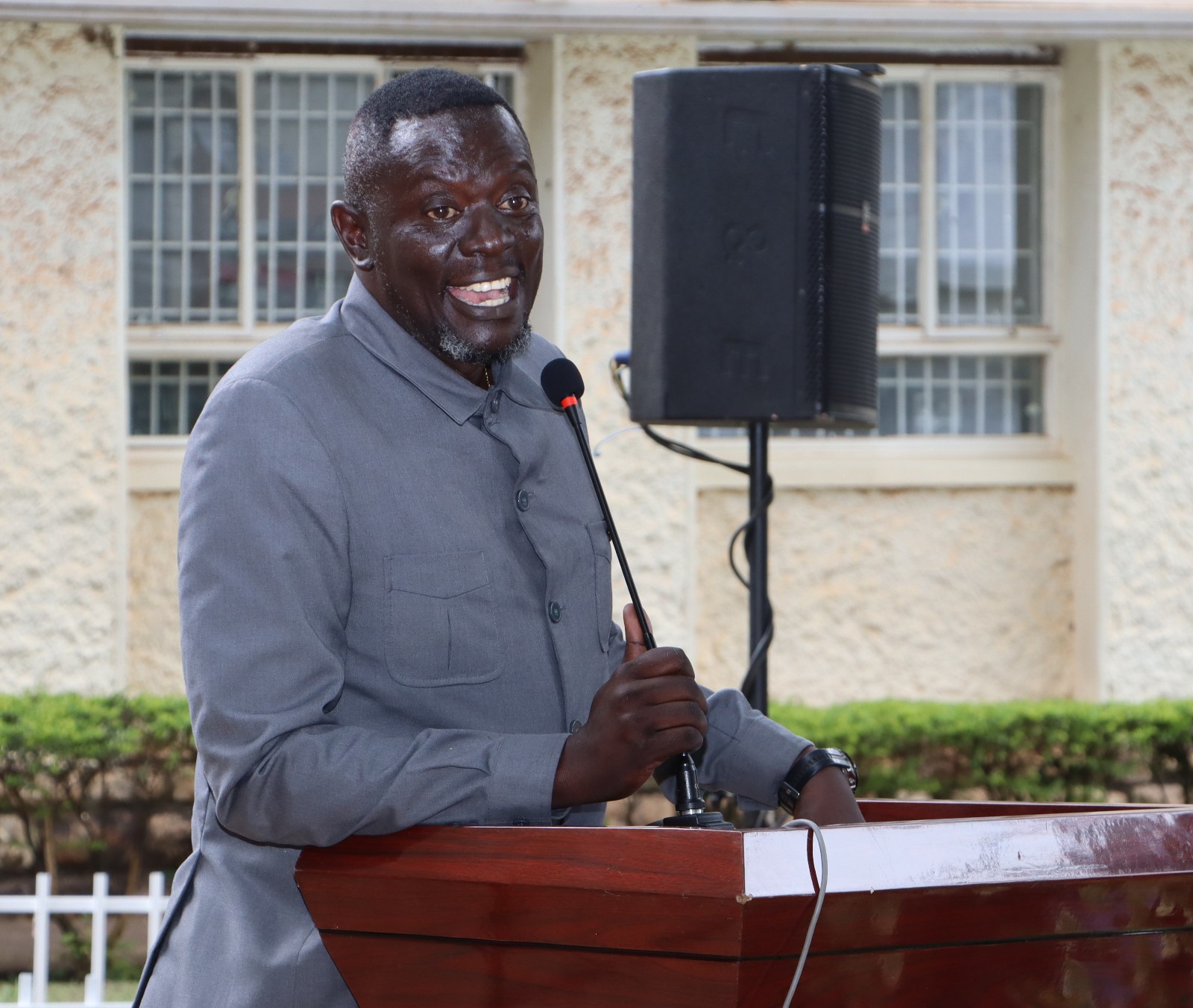
Presiding over the official opening on behalf of the Honorable Minister of State for Higher Education, Dr. John Chrysestom Muyingo, Commissioner Timothy Ssejjoba delivered a message emphasizing the educational significance of the initiative.
“This is not merely an exhibition of images,” he said. “It is a profound representation of intellectual partnership, cultural dialogue, and the enduring power of research and education to shape societies.”
Drawing inspiration from an African proverb—”When a child washes their hands, they dine with kings”—he acknowledged the honor of representing the Minister at such a distinguished gathering and used the opportunity to reaffirm government support for cultural preservation and academic innovation.
Commissioner Ssejjoba noted that Uganda’s aspirations, as articulated in the Vision 2040 and successive National Development Plans (NDP III and IV), align strongly with the goals of ethnographic research. He highlighted that investing in cultural heritage is not merely nostalgic but strategic for human capital development, social cohesion, and regional integration.

“In today’s world of globalization and displacement, ethnographic work becomes indispensable. It helps us preserve intangible heritage and build resilient, inclusive communities,” he said.
The commissioner commended the Italian Ethnological Mission, founded by Prof. Francesco Remotti and carried forward by Prof. Cecilia Pennacini and current Director Prof. Alessandro Gusman, for their long-standing engagement with Uganda and the wider Great Lakes Region.
Ministerial Appeal: Cultural Studies Are a Necessity, Not a Luxury
A key message in his remarks was a direct call to Uganda’s higher education institutions:
“I therefore call upon our universities to continue integrating cultural studies into mainstream curricula—not as a luxury, but as a necessity in building well-rounded, empathetic, and informed citizens.”
This appeal was underpinned by the government’s commitment to transformative education, as outlined in the Social Education Sector Strategic Plan, which seeks to produce globally minded graduates capable of addressing complex societal issues.
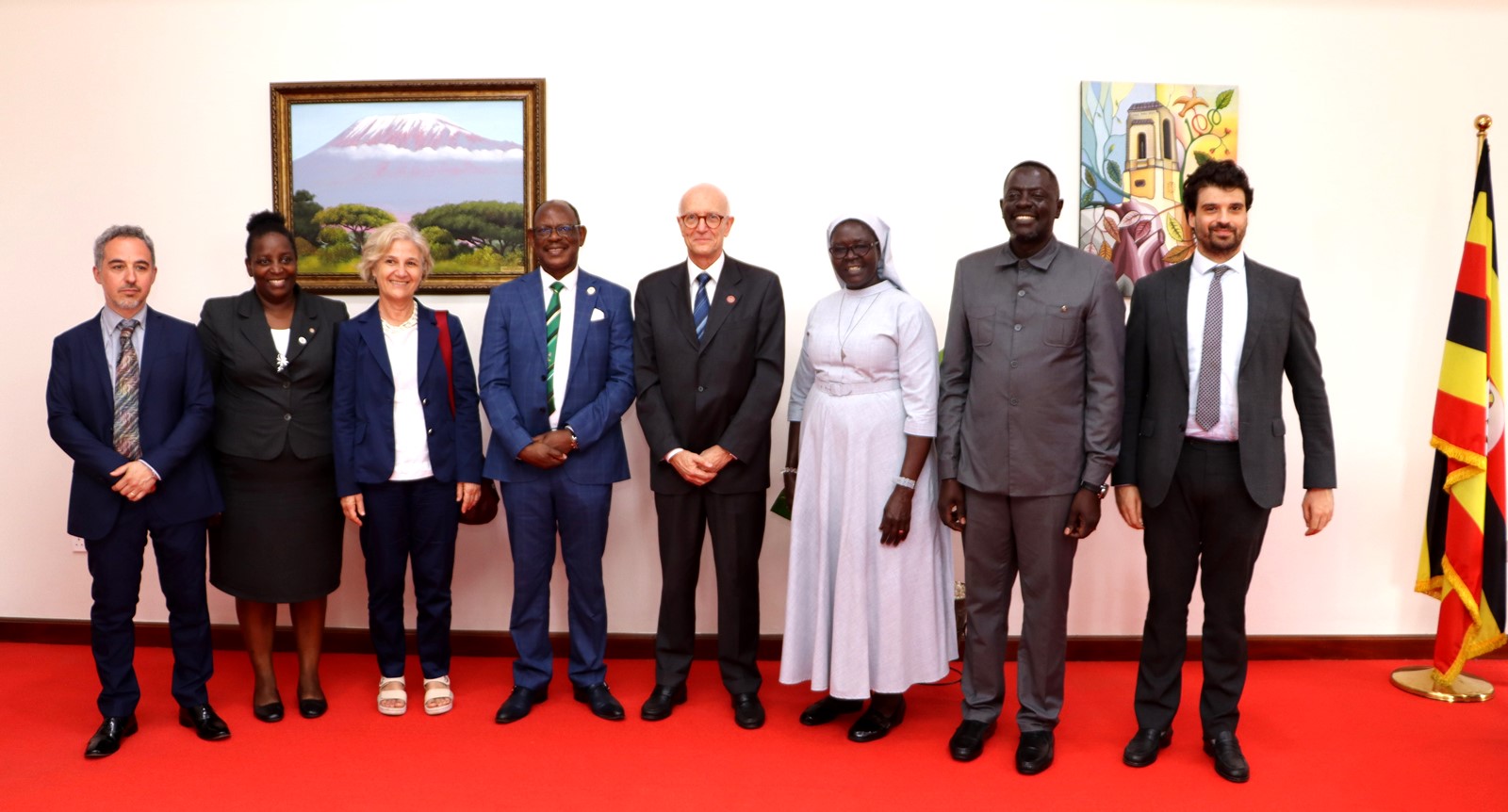
The commissioner also lauded the Erasmus+ Programme for facilitating student and staff mobility between Makerere and the University of Turin, significantly improving PhD completion rates and strengthening international research ties.
The Connecting Cultures exhibition offers a visual journey through four decades of ethnographic work, touching on themes such as identity, migration, oral traditions, music, and the social lives of communities across the region. It serves not only as a scholarly archive but also as a bridge between past and future generations.
“These photographs are living stories,” Ssejjoba emphasized. “They reflect identity, tradition, and the power of memory in shaping who we are—and who we aspire to become.”
In echoing the day’s theme, Commissioner Ssejjoba described the exhibition as “a testament to the transformative power of education, culture, and international solidarity.” He called upon development partners to support similar initiatives that use culture as a tool for peacebuilding, intercultural dialogue, and inclusive development.
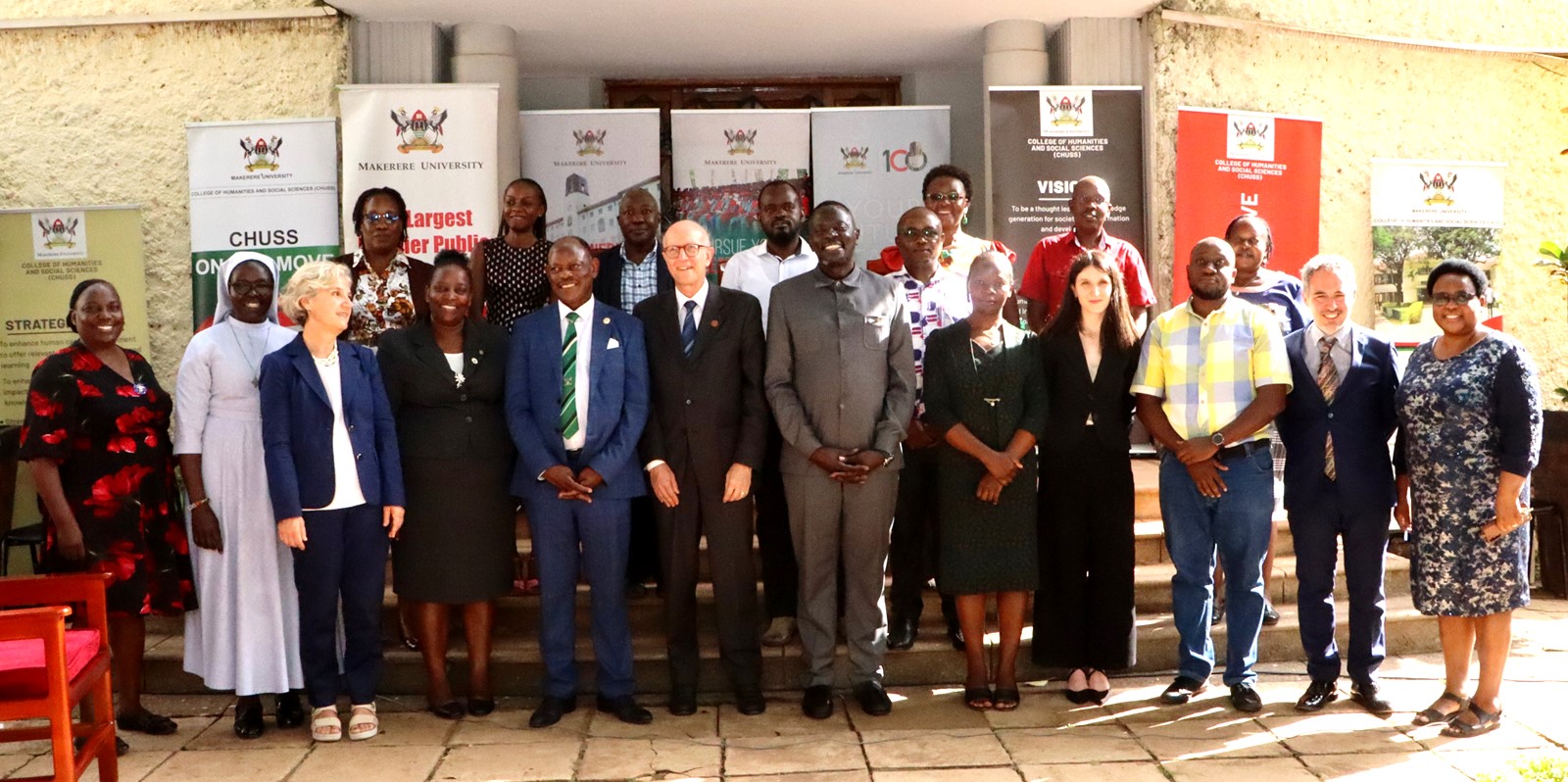
“To the students, researchers, and the broader public,” he concluded, “may you draw inspiration from this work. Let us preserve our cultural heritage, connect across borders, and use education as a force for progress.”
Italy Backs Cross-Cultural Research as Key to Social Transformation – Ambassador Massoni
Italy’s Ambassador to Uganda, H.E. Mauro Massoni, hailed cross-cultural academic collaboration as a powerful vehicle for social change, policy innovation, and mutual understanding, calling the partnership between Makerere University and the University of Turin a model for international cooperation.
Ambassador Massoni praised the longstanding collaboration between Italian and Ugandan scholars, particularly through the Italian Ethnological Mission in the Great Lakes Region. He noted that the mission, established over four decades ago, continues to foster intercultural dialogue and tackle shared global challenges through ethnographic research.
“This exhibition offers more than images. It tells the story of enduring cooperation—academic, cultural, and human—between our two countries,” he said. “It’s a testament to what we can achieve when we work together across disciplines, borders, and continents.”
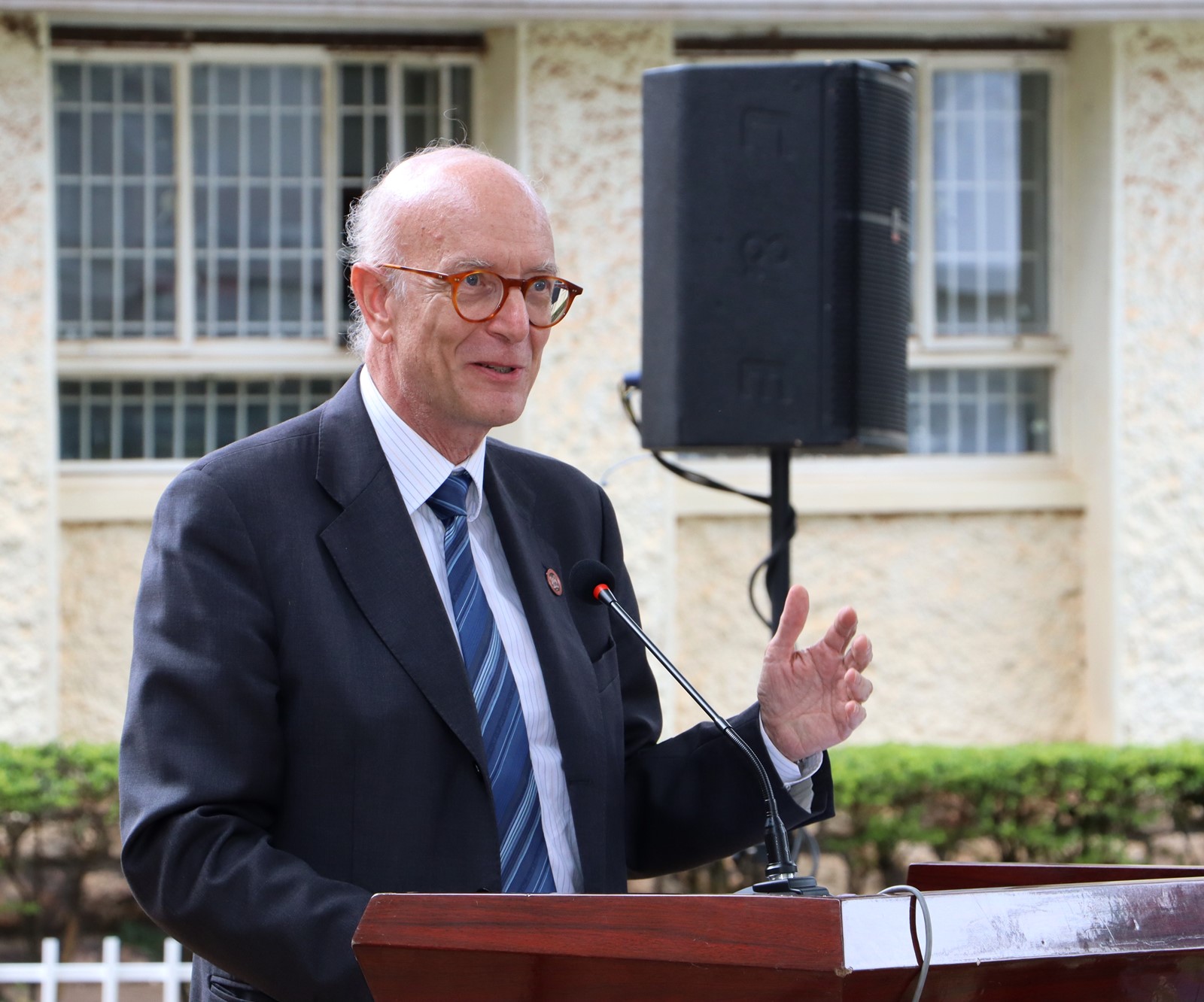
The Ambassador commended the University of Turin, particularly Professors Alessandro Gusman and Cecilia Pennacini, for their leadership in driving fieldwork-based research that links academia with community needs. He emphasized that the mission has not only enriched scholarly understanding but also played a role in social dialogue, community engagement, and humanitarian advocacy.
“This partnership transcends academic borders. It contributes to policy development and community cohesion. It shows how research—when rooted in empathy and equity—can improve lives,” he said.
Ambassador Massoni also spotlighted collaborative projects such as those examining migration, refugee experiences, and mobility in East Africa, many of which are supported by the Erasmus+ programme. These joint initiatives, he said, help address pressing social issues through shared academic pathways.
“Such work strengthens mutual comprehension and confronts the complex realities shaping our societies today,” he noted.
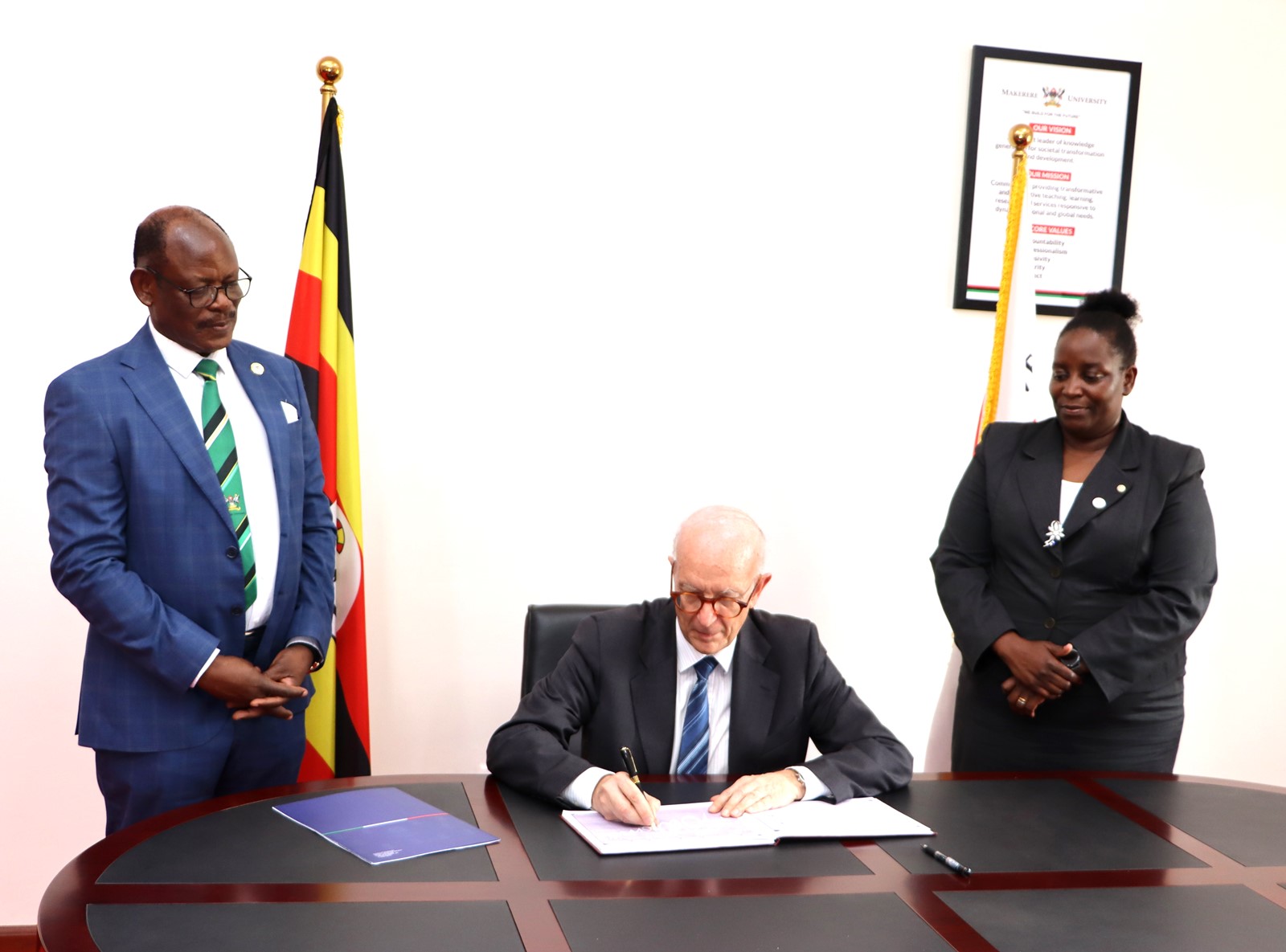
Additionally, he highlighted the recent launch of the Strengthening African-Italian Museum Partnerships project, supported by the Italian Agency for Development Cooperation. The initiative aims to digitize and preserve African cultural heritage in collaboration with major Italian and African museums, including the Uganda Museum.
“Italy is proud to support this effort. We see scientific diplomacy and cultural heritage as powerful tools for trust, understanding, and long-term collaboration,” he said.
In closing, Ambassador Massoni expressed gratitude to Makerere University and the wider academic and curatorial teams behind the exhibition. He encouraged guests to view the display not only as a celebration of past work but also as a call to future action.
“Let us continue building together—not only academic bridges—but human ones,” he concluded.
We must train more Archeologists and Anthropologists- Vice Chancellor Prof. Nawangwe
Makerere University Vice Chancellor, Prof. Barnabas Nawangwe hailed universities as key agents of peacebuilding and intercultural dialogue, emphasizing their critical role in advancing global understanding amid rising geopolitical tensions.
Prof. Nawangwe praised the longstanding collaboration between Makerere University and Italian institutions, calling it a shining example of how academic partnerships can foster peace and mutual respect.

“Universities are the best engines for promoting peace in the world. There is no better institution than a university to bring people and cultures together,” Prof. Nawangwe asserted.
Reflecting on historical ties, Nawangwe recalled the substantial support Makerere received from the Italian government during the 1987 donor conference, particularly in reviving the Faculty of Technology. He noted that the impact of such partnerships goes beyond infrastructure and education, contributing to nation-building and lasting international friendships.
“I personally benefited from those exchanges. I lived in Italy for a month, studied the language, and engaged with Italian culture. These interactions create lifelong connections,” he said.
He pointed to Makerere‘s global footprint as a leading research institution, recently ranked by Times Higher Education as the most collaborative university in the world, based on international research partnerships.
“At Makerere, we have more researchers publishing with colleagues from other universities than anywhere else. This collaborative spirit reflects our belief in academic diplomacy as a force for development,” he explained.
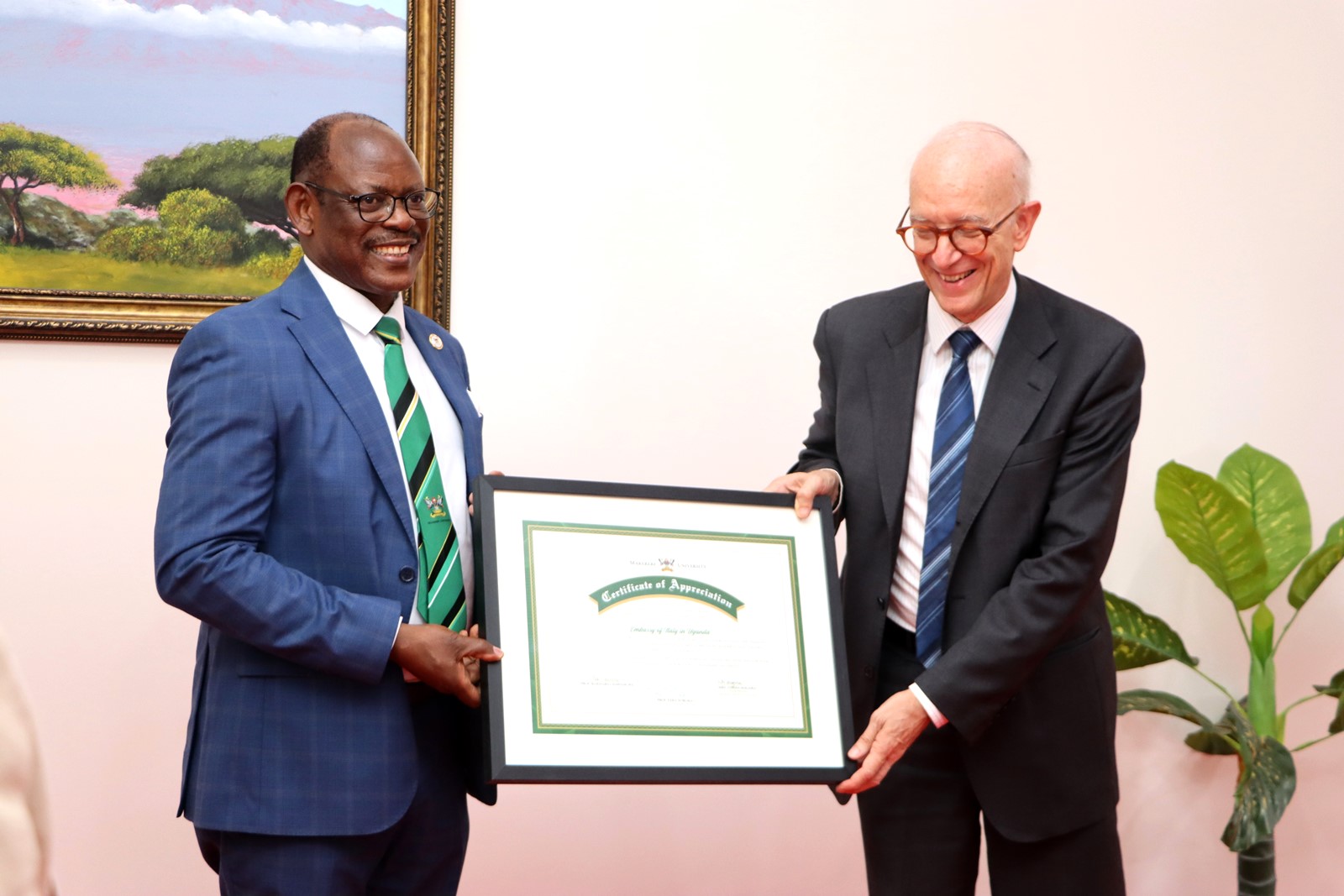
Prof. Nawangwe highlighted the university’s particularly strong ties with Italy, noting that most of its Erasmus+ academic exchange agreements are with Italian institutions. He attributed this to the deep-rooted friendship between Uganda and Italy, with Makerere acting as “Uganda compressed in one place.”
Praising the exhibition’s vivid portrayal of East and Central African cultural heritage through photography, Nawangwe called visual documentation one of the most powerful tools for preserving and communicating knowledge.
“A photographic illustration is the strongest kind of evidence. It stays with you. What I saw today helped bring to life things I’ve only read or heard about,” he said.
The Vice Chancellor also expressed concern over the limited development of disciplines like archaeology in Uganda, describing it as “a shame” that the country only recently graduated its first archaeologist.
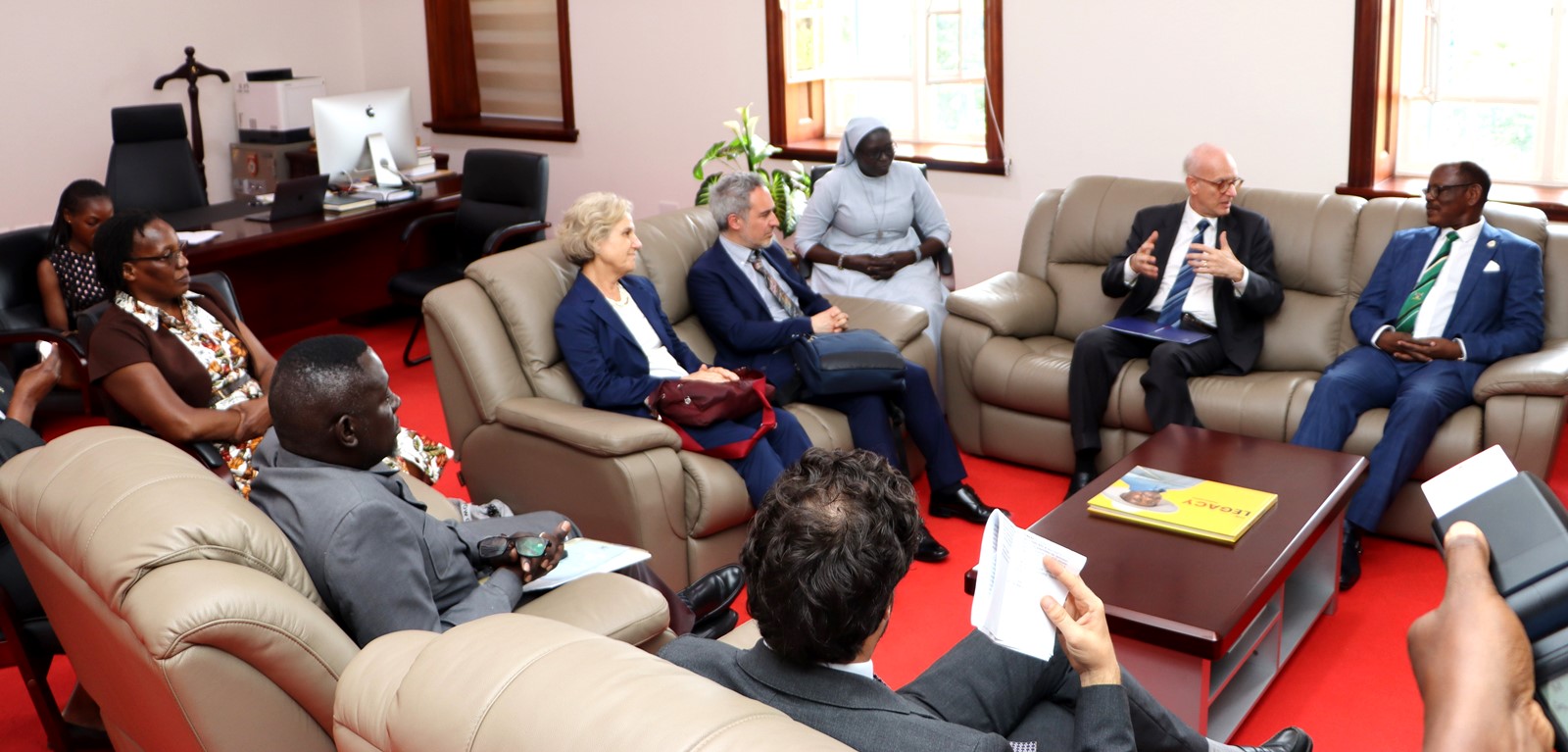
“With all our cultural diversity and historical wealth, how can archaeology be new in Uganda? We must train more archaeologists and anthropologists to study our own heritage,” he urged.
He concluded by encouraging scholars to remain committed to cultural research and international collaboration, thanking the Italian Embassy for its continued support in fostering ties between Uganda and Italy.
“We must keep walking in our pursuit of knowledge, peace, and progress for Uganda and the world,” Nawangwe said, in his characteristic blend of seriousness and humor.
Nkabala Calls for Introduction of Italian Language at Makerere to Deepen Cultural Connections
Associate Professor Helen Nambalirwa Nkabala, Principal of the College of Humanities and Social Sciences (CHUSS), called for the introduction of Italian language instruction at the university as a strategic step in strengthening cultural and academic ties between Uganda and Italy.
Prof. Nkabala emphasized the importance of language in fostering deeper intercultural understanding and advancing the university’s global engagement agenda.
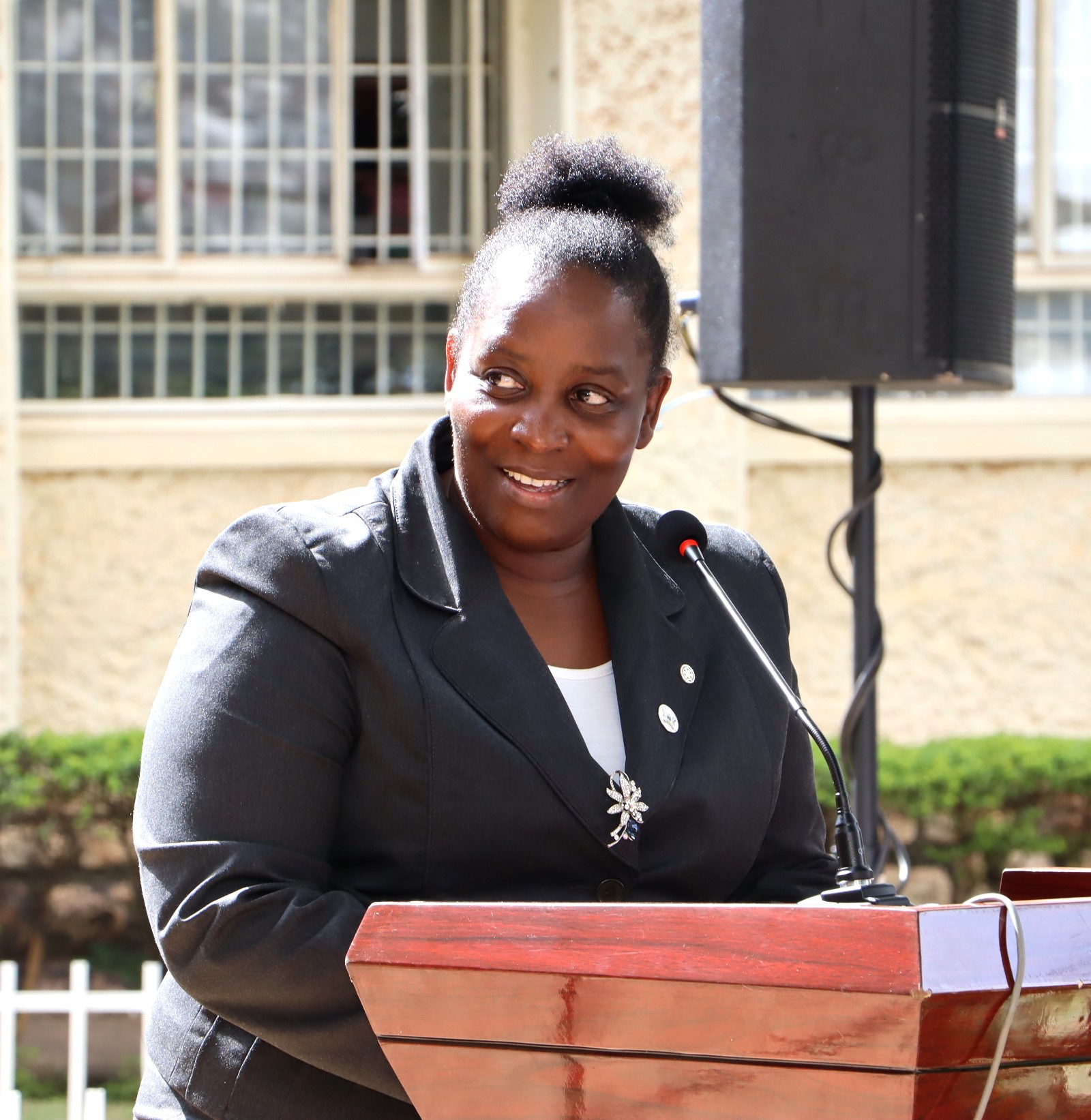
“In addition to what is already happening, we’d like to invite you to the School of Languages, Literature, and Communication so that we can start teaching Italian at Makerere University. When we talk about connecting cultures, issues of poetry come in,” Nkabala said.
The principal highlighted the longstanding relationship between Makerere University and Italian academic institutions, referencing ongoing collaborations with the University of Turin, the European Academy of Religion, and new engagements with Sapienza University of Rome. She also acknowledged support from Italian scholars such as Prof. Alessandro Gusman and Prof. Cecilia Pennacini.
“Friends, today is testimony that the College of Humanities and Social Sciences will use all that is within its means to change the narrative,” she said, referring to the exhibition as a powerful demonstration of the college’s research impact and cultural outreach.
Prof. Nkabala praised Makerere’s deans, heads of departments, and academic staff for their collective efforts in organizing the exhibition, and extended special appreciation to the Italian Embassy in Kampala for its continued logistical and visa support, which has enabled seamless academic exchange.
“Our academics never get problems because you have a very dynamic team. We thank you very much for allowing them the opportunity to support us when we need it,” she noted, addressing Italian Ambassador Mauro Massoni directly.
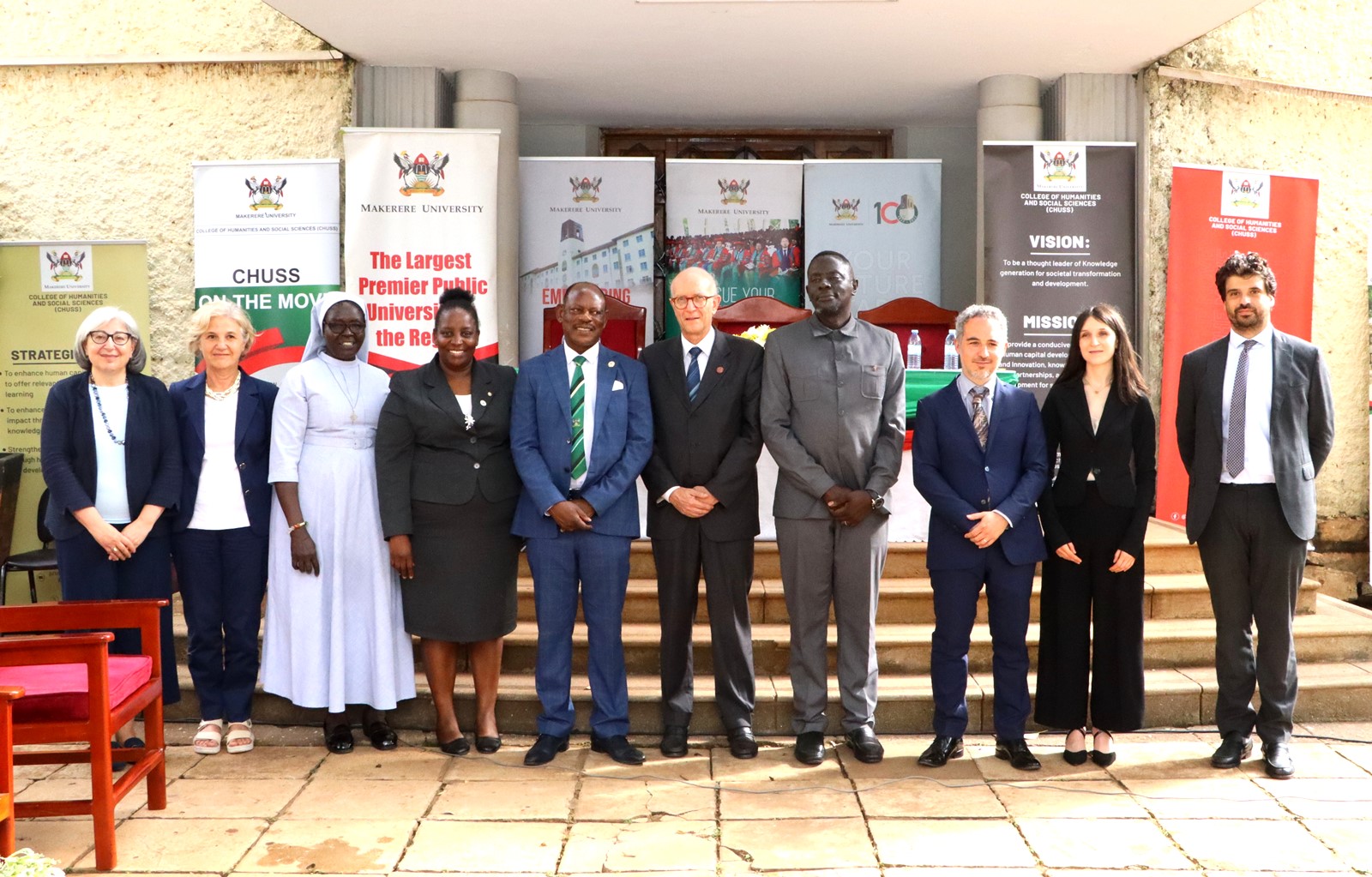
She also paid tribute to predecessors, including Prof. Josephine Ahikire and the former Principal Prof. Edward Kirumira, for their role in laying the foundation for enduring academic partnerships between Uganda and Italy.
As the College of Humanities and Social Sciences continues to expand its international footprint, Nkabala urged faculty and students to remain committed to collaboration and participation in future joint initiatives.
“Colleagues, I call upon you to be present when called upon,” she said, reaffirming CHUSS’ dedication to cultural diplomacy through research, language, and the arts.
Africa Offers the World Wisdom and Science—Prof. Pennacini Urges New Era of Equal Academic Partnerships
Professor Cecilia Pennacini, former Director of the Italian Ethnographic Mission in the Great Lakes Region called for a paradigm shift in Africanist research and cultural cooperation, asserting that Africa offers the world invaluable wisdom, philosophy, and science.
Prof. Pennacini emphasized that Italian scholars came to Africa “not to teach, but to learn.”
“The ancient civilizations of Africa have so much to teach the Western world—in terms of knowledge, wisdom, philosophy, politics, even science and art,” she said. “This is why our mission has always been grounded in humility and mutual respect.”
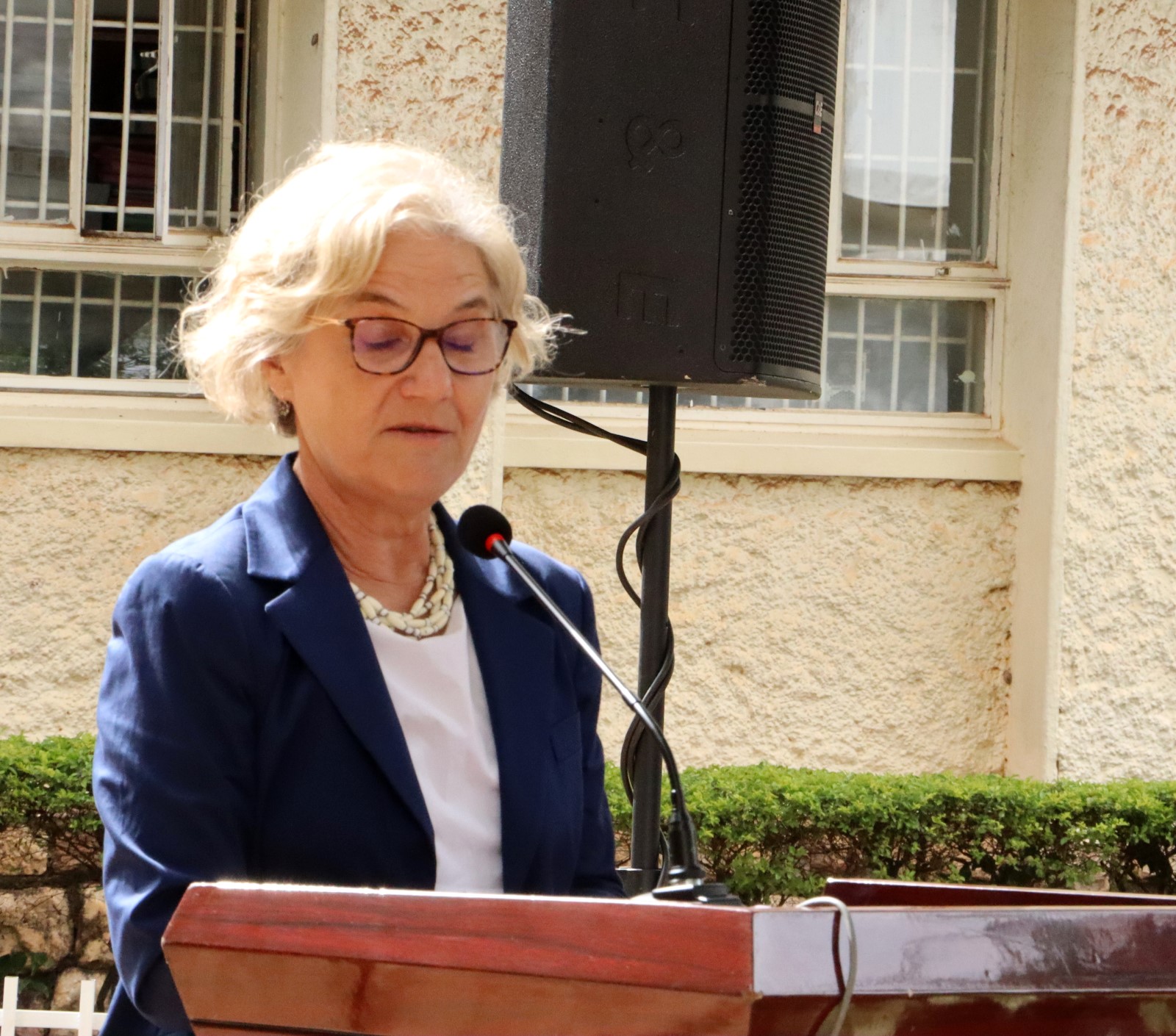
Prof. Pennacini reflected on the foundational vision of the Italian Ethnographic Mission, established by her mentor, Prof. Francesco Remotti, who advocated for fieldwork rooted in cultural dialogue rather than colonial paradigms of knowledge extraction.
Upon assuming leadership of the Mission in 2005, Pennacini prioritized creating equal academic partnerships. She credited this approach with the establishment of a formal collaboration with Makerere University, which has since flourished through joint research, teaching exchanges, and mobility programs funded by the European Union’s Erasmus+ initiative.
“We have grown together—building common knowledge and hopefully laying foundations for future generations,” she noted.
Prof. Pennacini also announced a major new initiative aimed at transforming museum practice and cultural preservation across Africa and Europe. The project, Strengthening African-Italian Museum Partnerships, is supported by the Italian Agency for International Development Cooperation (AICS) and will connect eight museums—four in Africa and four in Italy.
Participating institutions include the Uganda Museum, the National Museum of Ethiopia, the National Museum of Lubumbashi in the DRC, and the Ethnographic Museum at Addis Ababa University. These will collaborate with the Museum of Civilizations in Rome, the Royal Museums of Turin, the Savoy Residences in Piedmont, and the Anthropology and Ethnography Museum at the University of Turin.
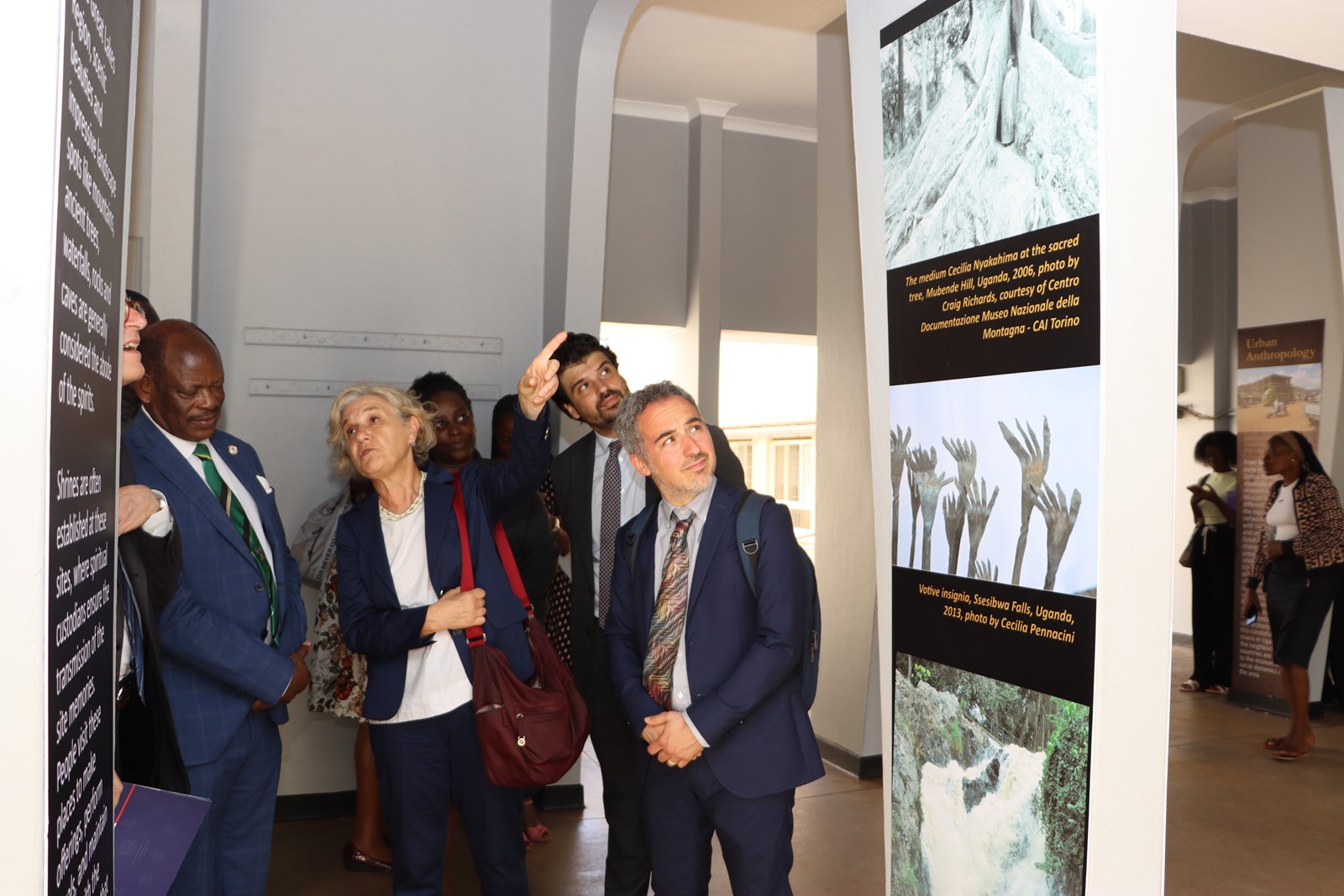
“This project seeks to digitize, catalogue, and valorize ethnological and artistic collections through a participatory approach,” she said. “It will involve local communities, diaspora groups, and civil society as co-creators of museum life.”
Prof. Pennacini stressed the need for museums to be transparent about the provenance of their collections and to embrace inclusive narratives that reflect source communities’ voices. She tied this initiative to Italy’s broader commitment to a redefined model of cooperation inspired by the Mattei Plan for Africa, which promotes non-exploitative, mutually beneficial partnerships.
“Culture must be seen as a fundamental pillar of human development—socially, economically, and intellectually,” she concluded.
Italian Ethnological Mission Celebrates 46 Years of Cultural Research and Partnership in the Great Lakes Region — Prof. Gusman
Professor Alessandro Gusman, Director of the Italian Ethnological Mission in the Great Lakes Region, reaffirmed the mission’s enduring commitment to linking people, cultures, and institutions across national borders through academic and cultural research.
Prof. Gusman described the event as both a celebration and a reflection on 46 years of Italian ethnological research in East Africa, particularly the Great Lakes Region.
“This exhibition retraces the history of our work and celebrates our long-standing collaboration with Makerere University, one of the most esteemed academic institutions in East Africa,” he said.
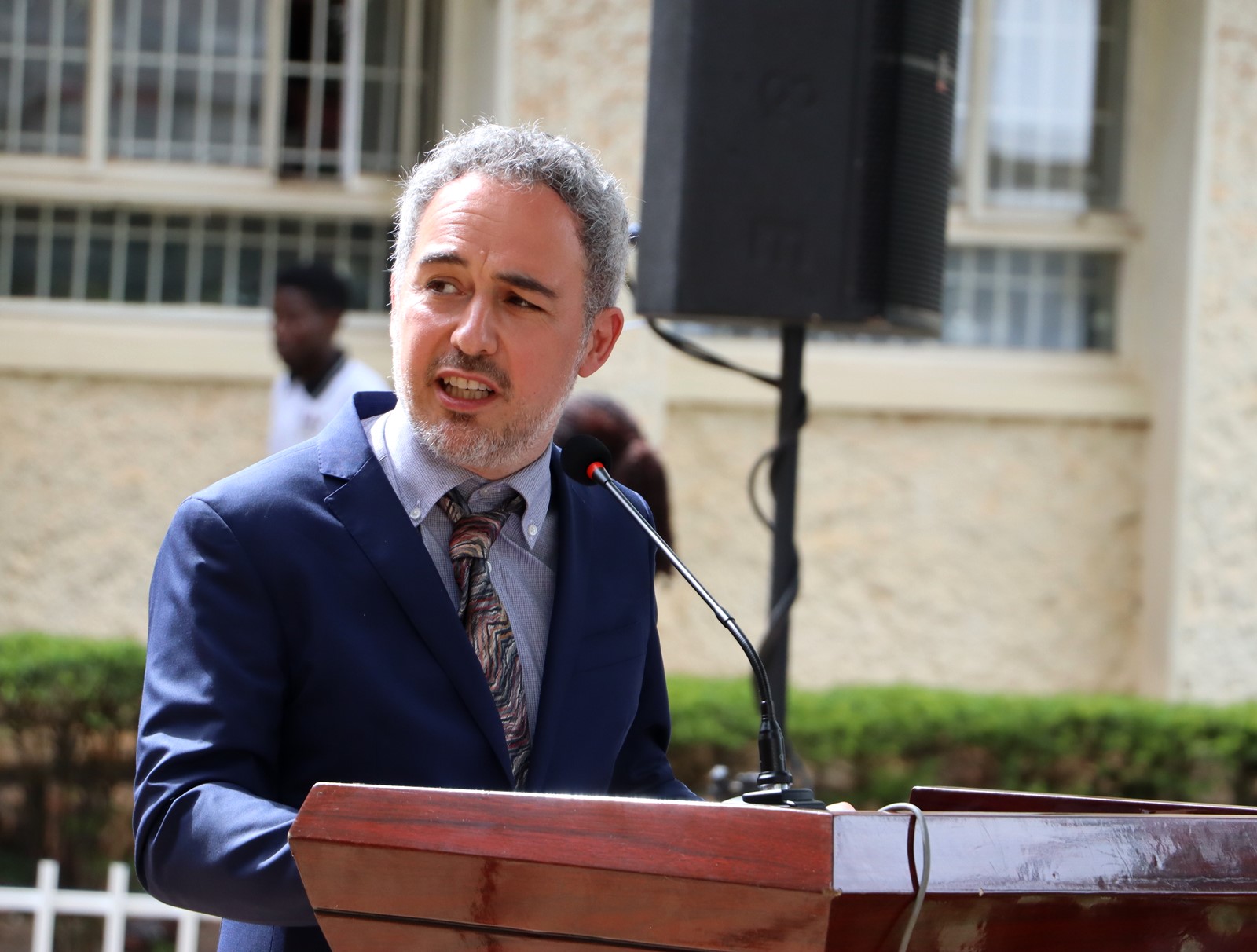
The Italian Ethnological Mission, founded in 1979 by Prof. Francesco Remotti in what was then Zaire (now the Democratic Republic of Congo), has progressively expanded its research footprint across the region—later including Burundi, Rwanda, Tanzania, and Uganda. It officially began its partnership with Makerere in 2004, a relationship Prof. Gusman said has significantly shaped the mission’s academic trajectory.
“The title Connecting Cultures reflects the mission’s core goal understanding and linking diverse societies through shared anthropological inquiry,” Prof. Gusman noted.
He expressed gratitude to the Italian Embassy in Kampala for its continued support, and to the College of Humanities and Social Sciences (CHUSS) at Makerere University for hosting and nurturing the partnership over two decades.
Special acknowledgment was extended to Prof. Cecilia Pennacini, who led the Mission from 2004 to 2018, for deepening the collaboration with Makerere and expanding research into Uganda. Prof. Gusman emphasized that the Mission’s work has always prioritized cultural continuity and regional interconnectivity through language, social structures, and institutions.
“The photographs and texts featured in this exhibition are the result of decades of collaborative research and dialogue,” he said. “They are not just artifacts—they are bridges between nations, histories, and academic traditions.”
Looking forward, Prof. Gusman expressed hope that the partnership would continue to flourish, enhancing academic prestige and generating lasting societal impact.
“Our hope for the future is that these collaborations will grow deeper, bringing not only recognition to the institutions involved but also creating meaningful change across communities,” he concluded.
Makerere’s Prof. Dipio: Italian Collaboration Brings Cultures and Institutions Closer
Professor Dominic Dipio, Coordinator of the ERASMUS Mobility Program at Makerere University, praised the ongoing academic and cultural partnership between Uganda and Italy, calling it a powerful force for diplomacy and institutional connection.
Prof. Dipio highlighted how collaborative efforts between the University of Turin, Makerere, and the Italian Ethnological Mission in the Great Lakes Region have served to “bring Italy closer to Uganda.”
“Exhibitions like this are important because many Ugandans, especially those shaped by British colonial heritage, know little about Italy. These events narrow that gap,” she said.
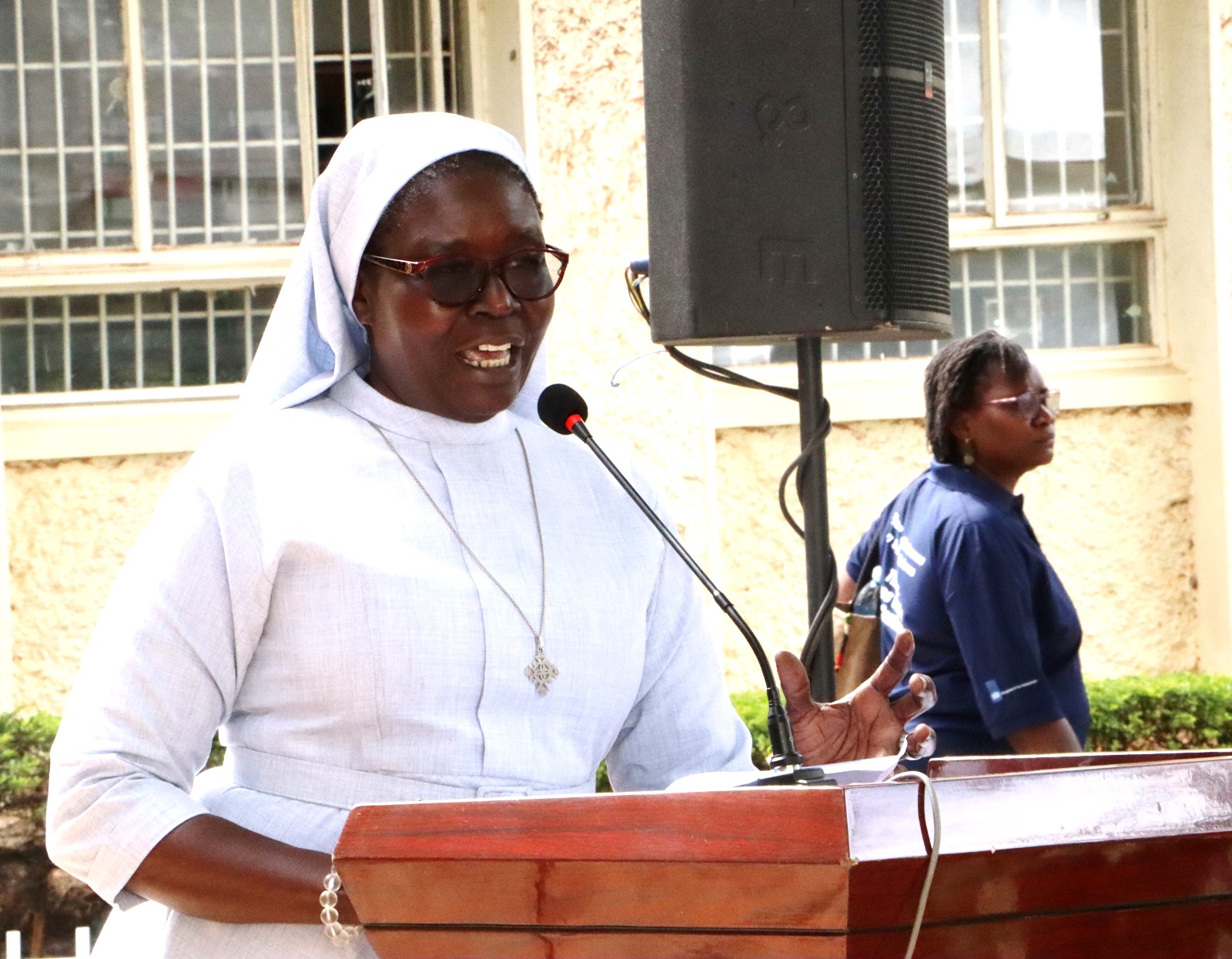
The exhibition, organized in partnership with the Italian Embassy in Kampala, builds on a previous one held in 2022. Prof. Dipio lauded the long-standing academic ties facilitated by the European Union’s Erasmus+ program, which has enabled robust student and staff mobility between the two universities since 2016.
“This triangular relationship between the Government of Italy, Erasmus+, and our universities has allowed Makerere students to spend up to ten months in Italy completing their dissertations — a rare opportunity that boosts our PhD completion rates significantly,” he noted.
Prof. Dipio emphasized the critical role of scholars in diplomacy, stating that research and academic exchange naturally weave connections across cultures and borders.
“The work of scholars often goes beyond classrooms and papers. It becomes a means of international dialogue and peacebuilding,” he said.
She also commended the logistical teams from Makerere, the University of Turin, and the Italian Embassy — particularly the visa section — for enabling seamless academic travel.
“Your commitment, your flexibility, and your belief in this partnership have made it thrive. We are grateful,” Dipio said, addressing embassy representatives present.
The exhibition showcases decades of ethnographic research by the Italian mission and emphasizes themes of cultural continuity, social institutions, and intercultural exchange in the Great Lakes region. Prof. Dipio expressed hope that the exhibition panels remain accessible for more students and faculty to benefit from before the academic break.
“We pray this collaboration continues to flourish. It is not just institutional — it is deeply personal. We now call each other by our first names, a sign of the trust and friendship we’ve built,” she concluded.
The Connecting Cultures exhibition is part of a broader movement at Makerere University to internationalize its academic outlook and deepen ties with institutions around the world, especially in the humanities and social sciences.
Jane Anyango is the Principal Communication Officer CHUSS
You may like
-


How People Earn a Living is Contributing to Malaria Risk in Uganda, Study Finds
-
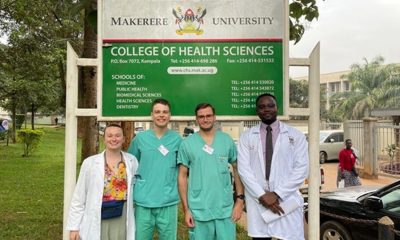

MakCHS Strengthens Internationalization through Strategic Global Partnerships and Mobility
-


Breaking the Silence on Digital and Gender-Based Violence: Male Changemakers Lead Makerere University’s Strides for Change
-
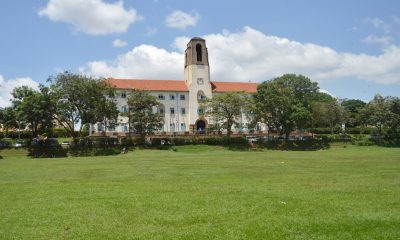

Advert: Admission to Bachelor of Education External (BED) 2026/27
-


Call for Applications: Diploma Holders under Government Sponsorship 2026/2027
-
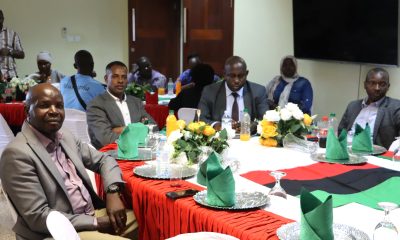

EfD Uganda Marks 2025 Milestones, Sets Strategic Path for 2025–2029
Humanities & Social Sciences
College of Humanities and Social Sciences Launches Five Groundbreaking Publications
Published
4 weeks agoon
December 12, 2025By
Eve Nakyanzi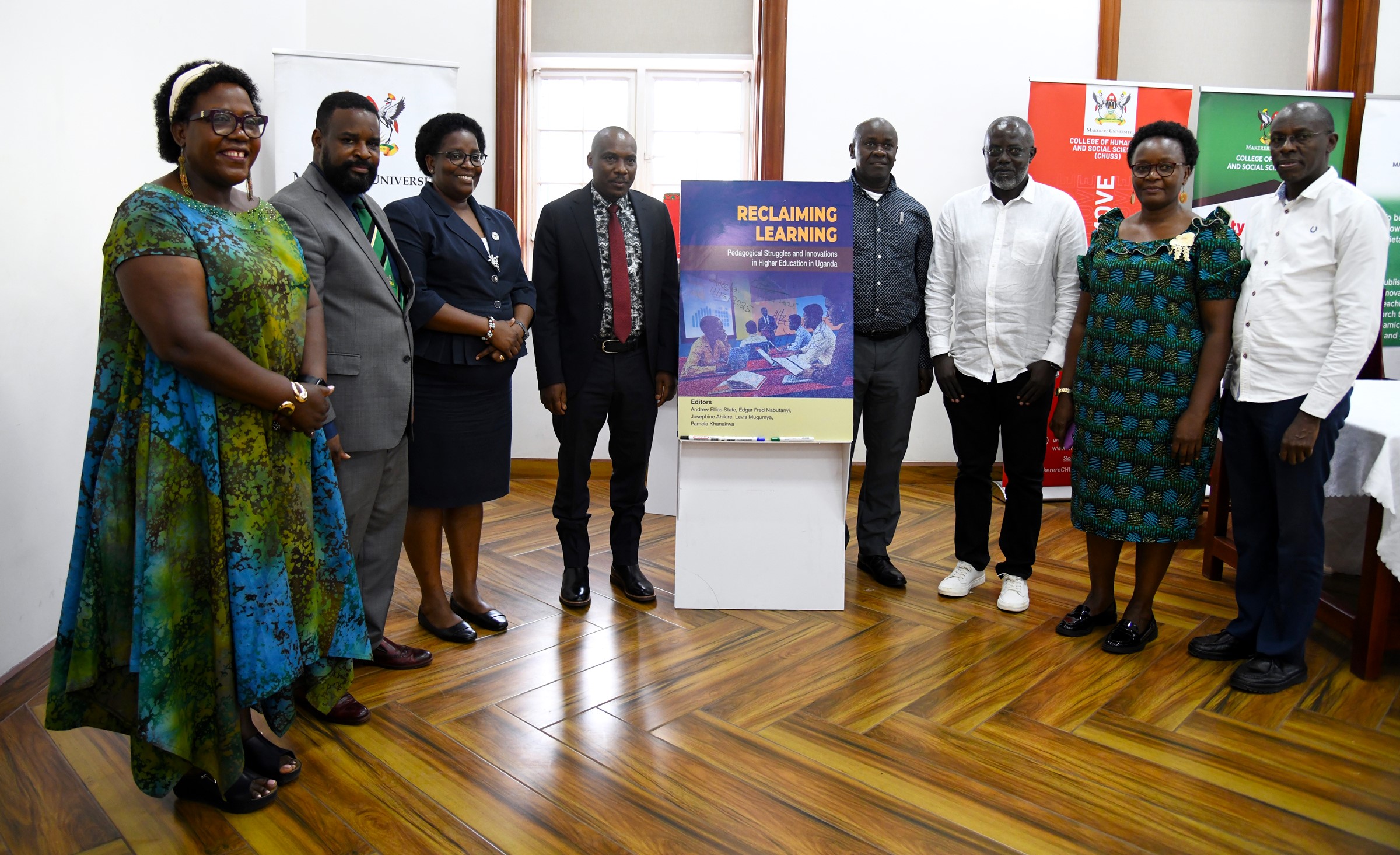
The College of Humanities and Social Sciences (CHUSS) on 11th December 2025 celebrated the launch of five scholarly books, marking a significant milestone in the College’s contribution to academic research and discourse. The event brought together faculty, students, and distinguished guests, highlighting the College’s commitment to advancing knowledge, preserving institutional memory, and fostering innovative scholarship.
Advancing Knowledge: Recognizing Authors and Promoting Research Excellence
Representing the Vice Chancellor and Deputy Vice Chancellor (Academic Affairs), Acting (Ag.) Deputy Vice Chancellor for Finance and Administration, Prof. Winston Tumps Ireeta, commended CHUSS on the launch of its five scholarly publications. He highlighted the significance of these works in advancing research, preserving institutional memory, and enriching student-centered teaching. Prof. Ireeta acknowledged the support of the Mellon Foundation under the Center of Excellence for Research, Teaching, and Learning (CERTL), as well as the contributions of the College’s faculty, research teams, and support staff. He emphasized that these publications not only strengthen the College’s academic profile but also foster critical thinking, informed debate, and national and international engagement, offering valuable resources for both scholars and the wider community.
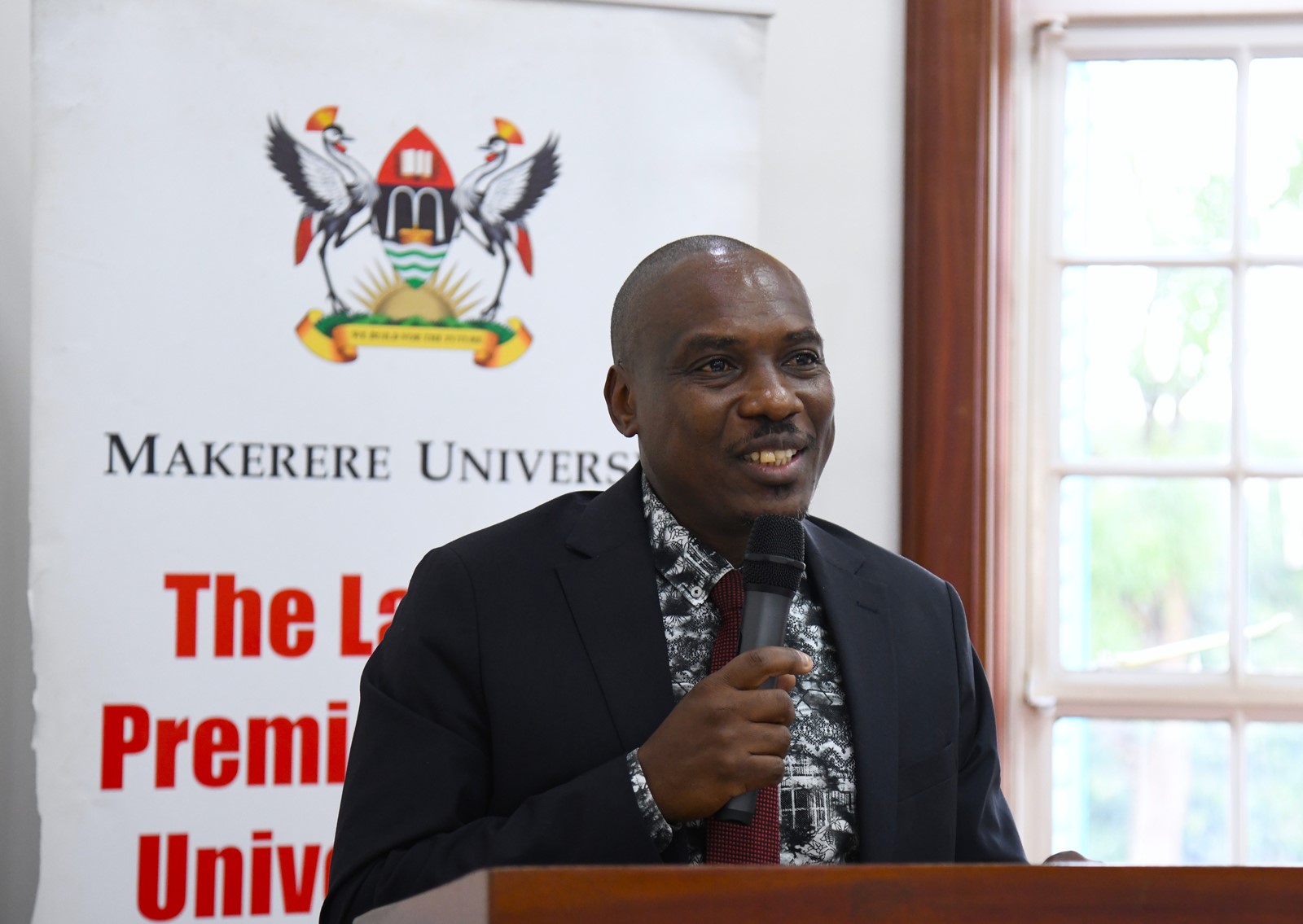
Prof. Robert Wamala, Director of the Directorate of Research, Innovation and Partnerships (DRIP), praised the CHUSS for the launch of five scholarly publications, emphasizing the dedication, intellectual rigor, and perseverance of the authors. He highlighted that these works—three books and a journal—demonstrate the critical role of the humanities and social sciences in shaping national development, informing public debate, and contributing to global discourse. Prof. Wamala commended the College for fostering a research environment that supports capacity building, collaborative networks, and high publishing standards, noting that the publications document African realities, preserve institutional memory, and provide knowledge that resonates locally and internationally. He encouraged continued scholarly collaboration, underscoring the university’s commitment to strengthening research governance and advancing its agenda as a leading center for African scholarship.

Prof. Helen Nambalirwa Nkabala, Principal of the College of Humanities and Social Sciences, warmly welcomed all attendees to the book launch, emphasizing the college’s pivotal role as the intellectual bridge connecting all other faculties at Makerere University. She acknowledged the presence and contributions of publishers, editors, management, and authors, noting that the success of such scholarly works relies on collaborative support across the University. Prof. Nkabala celebrated the dedication of homegrown talent, highlighting the importance of nurturing research, writing, and publication within the college. She also shared exciting updates on the establishment of the Office of Grants, Research Resource Mobilization, and Graduate Training, underscoring the college’s commitment to structured leadership, research excellence, and capacity building.

Celebrating Excellence: Contributions from University and Partner Publishers
Dr. William Tayeebwa, Head of Makerere University Press, celebrated a landmark day for the institution, highlighting the Press’s remarkable productivity and impact. He reflected on the recent launches, including Reinventing Uganda and Memory and Method for Material, and noted the impressive volume of over 15 publications released this year alone. Dr. Tayeebwa emphasized the Press’s commitment not only to publishing new works but also to republishing significant titles that have sold out globally, ensuring continued access to vital scholarship. A particular highlight was the revival of the Makerere Journal of Languages, Literature and Communication, which had not seen a publication since 1991; archival issues dating back to 1975 are now being digitized and made accessible online. He also stressed ongoing efforts to enhance the international visibility of the University’s journals through indexing and quality standards, underscoring the Press’s role in strengthening academic scholarship and advancing Makerere University’s global reach.
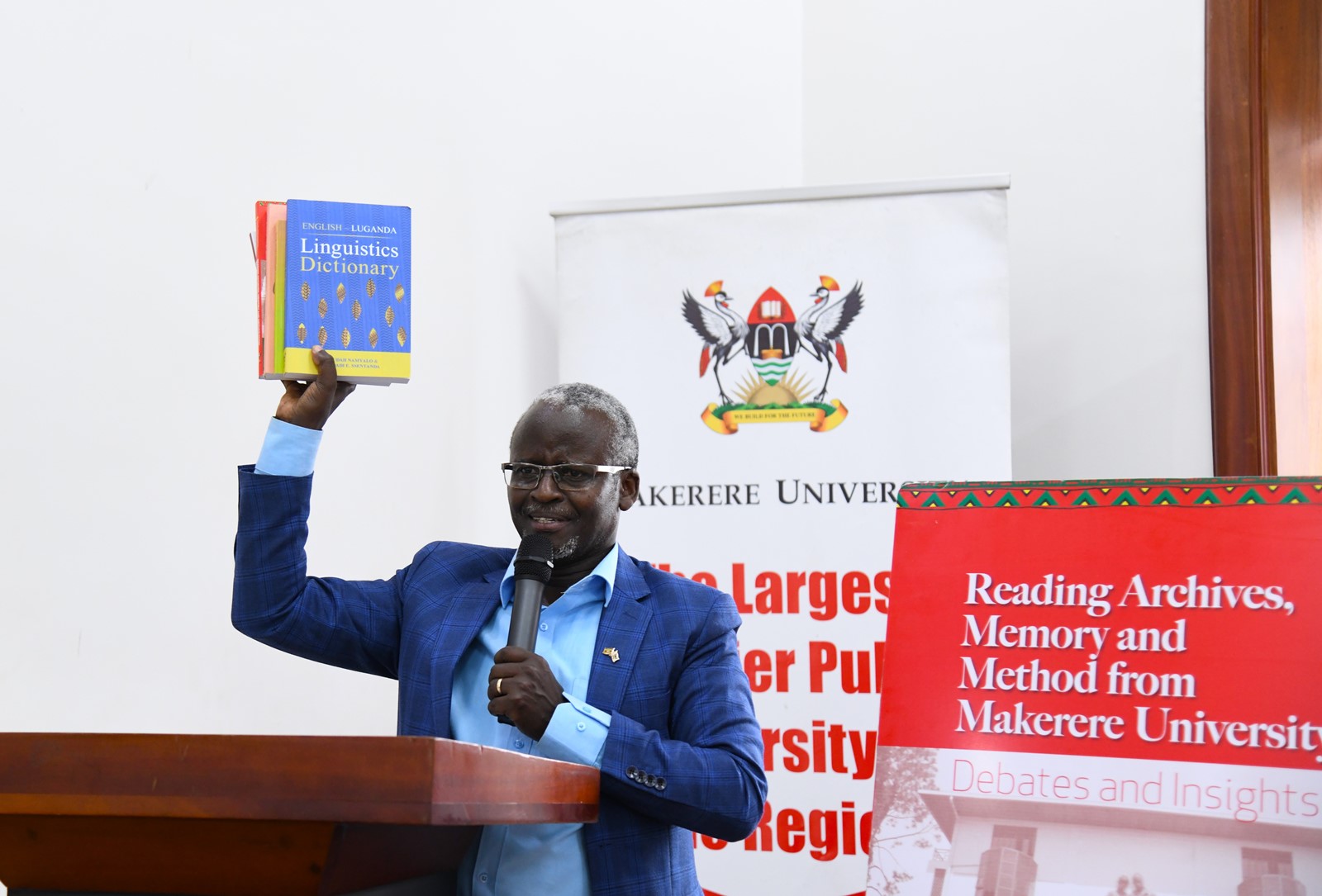
Speaking on behalf of Fountain Publishers, Mr. Tom Tibaijuka highlighted the long-standing partnership between the publishing house and Makerere University, noting the collaborative efforts that have helped nurture local scholarship. He emphasized that, despite the commercial nature of Fountain Publishers, their mission extends beyond profit to supporting scholarly contributions that enrich society. Mr. Tibaijuka praised the recently launched book, which features 12 chapters and 11 contributors, commending both the authors and the editorial team for their dedication in harmonizing such a complex manuscript. He noted the book’s alignment with the new competency-based curriculum promoted by the National Curriculum Development Authority, emphasizing its relevance in fostering critical thinking, innovation, and problem-solving skills in education. He concluded by congratulating all involved and encouraging educators and stakeholders to engage with the publication as a valuable resource for navigating contemporary educational challenges.

Prof. Rev. Sr. Dominica Dipio, representing the African Humanities Series Publisher, provided an overview of the series’ evolution and its impact on the continent’s humanities scholarship. She explained that the series began in 2014 as part of the African Humanities Program, initially supporting doctoral completion, before shifting focus to early-career mentorship to cultivate a new generation of humanities scholars. Over the past 15 years, the program has benefitted over 500 fellows across Uganda, South Africa, Nigeria, Ghana, and Tanzania, nurturing research and publications that address a wide range of humanities and social sciences disciplines, including philosophy, literature, languages, sociology, politics, and culture. Prof. Dipio emphasized that the series combines the experience of senior scholars with emerging voices, producing accessible, globally relevant work. She also highlighted an upcoming fellowship program designed to support early-career researchers for up to ten years, encouraging increased participation from Uganda to ensure broader engagement in the continent-wide initiative. The book being launched, she noted, exemplifies the series’ commitment to engaging, applied humanities that speak to everyday societal challenges, demonstrating the relevance and reach of African scholarship.
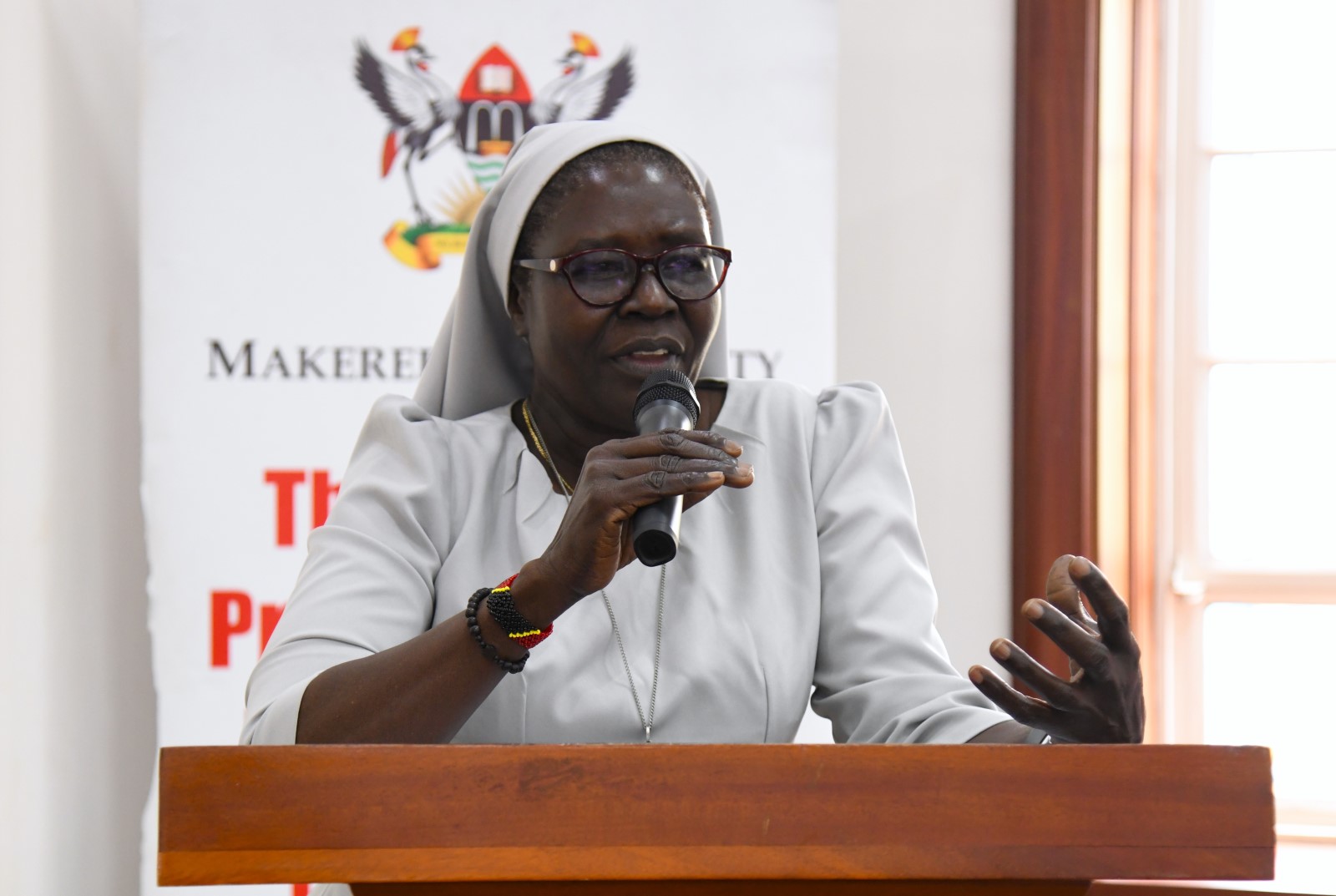
Championing African Scholarship and Knowledge Production
Prof. Josephine Ahikire, Principal Emeritus of CHUSS and Project Principal Investigator (PI) for Mellon Projects at Makerere University, emphasized the transformative role of the College’s publications in shaping African scholarship. She highlighted that these edited books and journals go beyond traditional metrics of academic recognition, creating vibrant scholarly communities where ideas are shared, debated, and collaboratively developed. Prof. Ahikire noted the importance of centering African-generated knowledge, reclaiming histories, and exploring underrepresented topics such as the social and cultural dimensions of motherhood. She applauded the project teams for their dedication and collaboration, describing the 2025 book launches as the beginning of a broader effort to document and disseminate African perspectives, ensuring that the continent’s intellectual contributions are recognized, celebrated, and preserved for future generations.
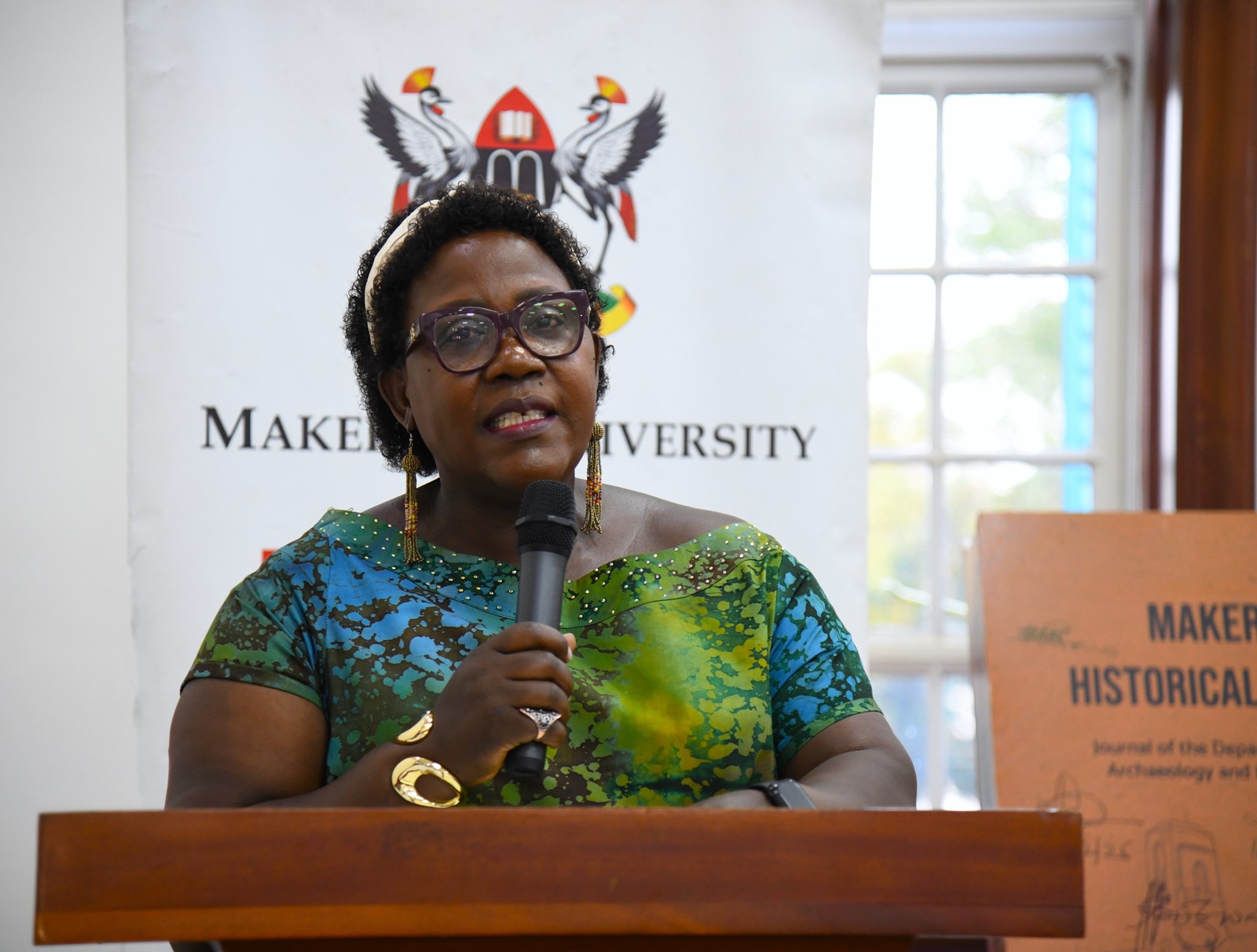
Prof. Andrew Elias, Director of the Centre of Excellence in Research, Teaching and Learning (CERTL), highlighted the critical relevance of the book Reclaiming Learning: Struggles and Innovations in Higher Education, noting that it arrives at a pivotal moment for Ugandan universities. He emphasized that growing enrollment, limited resources, and structural challenges—including large class sizes, inadequate facilities, and unequal access to online learning—have impacted the quality of education. The book, he noted, not only validates these shared experiences but also showcases innovative practices by Ugandan lecturers, from contextualized teaching methods to active learning strategies and the use of indigenous knowledge. Prof. Elias underscored that meaningful educational change requires institutional support, inclusive policies, and professional development, reminding stakeholders that effective pedagogy is a shared responsibility. The volume, he concluded, serves as both a practical guide and an inspiration for educators, policymakers, and institutions seeking to place students at the center of learning while promoting justice, inclusion, and human dignity in higher education.
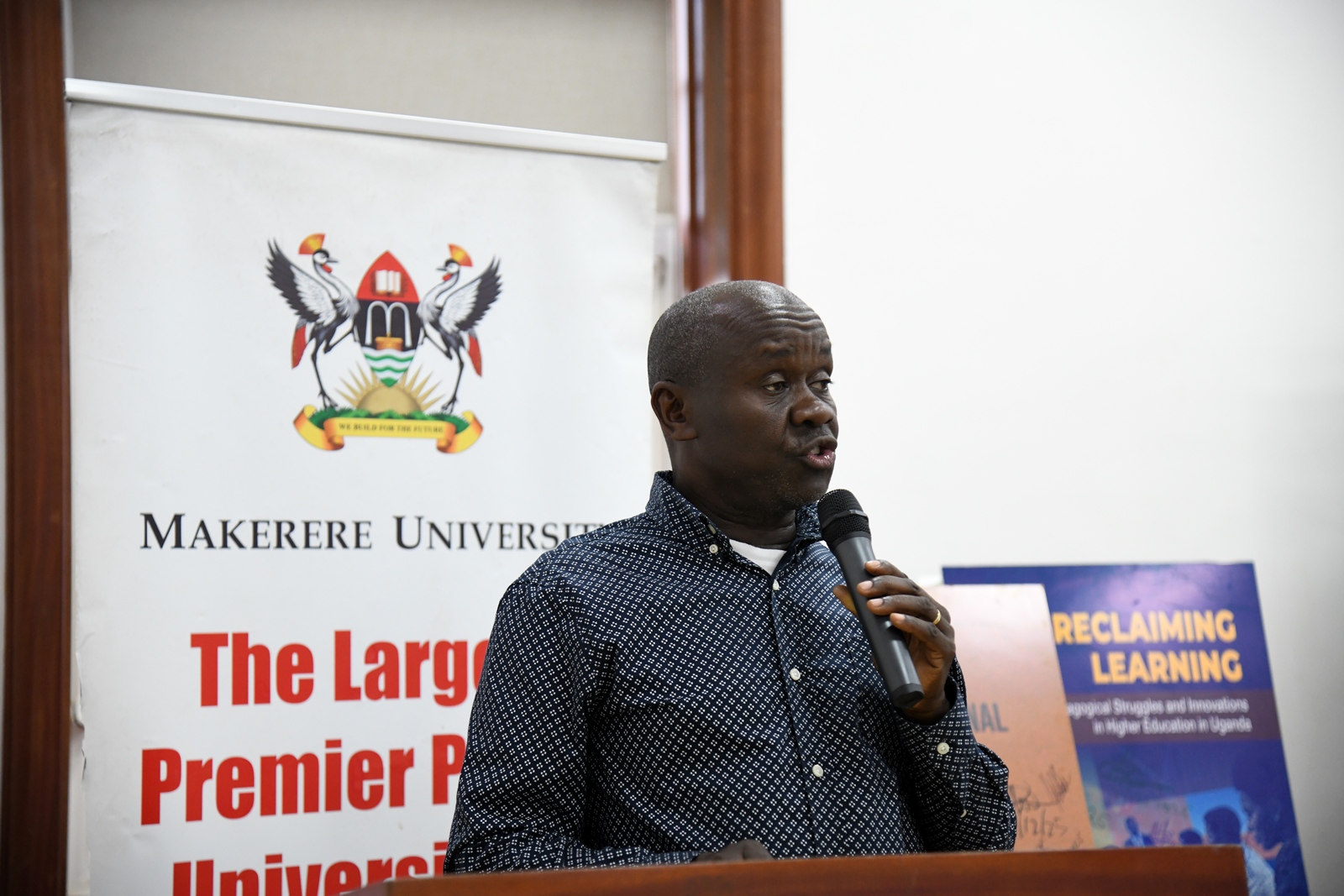
The Five Publications and Their Impact
Reclaiming Learning: Pedagogical Struggles and Innovations in Higher Education in Uganda (Prof. Andrew Ellias State et al.) explores student-centred teaching and innovative approaches in African higher education, supported by the Mellon Foundation through CERTL.
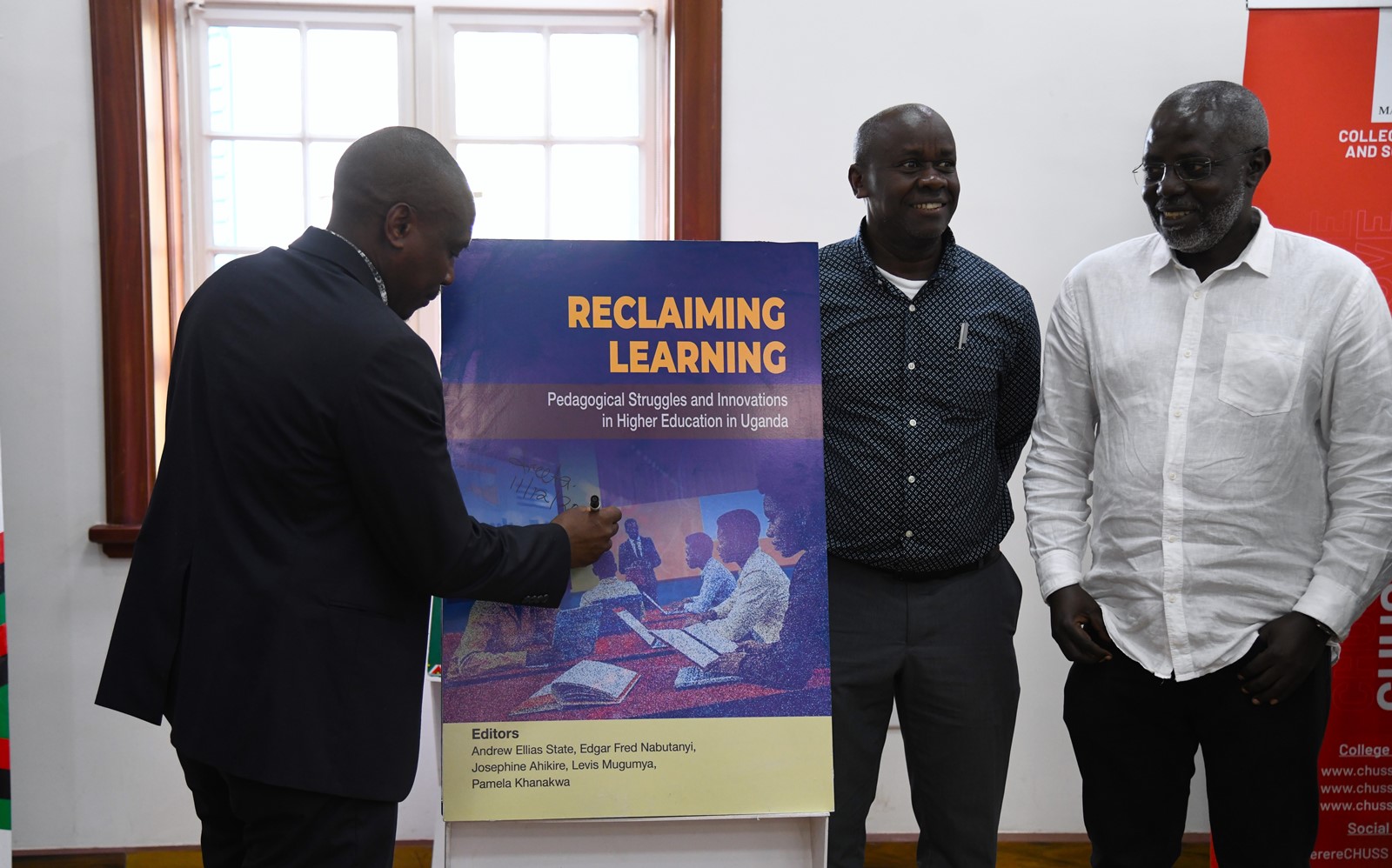
Reading Archives, Memory and Method from Makerere University (Assoc. Prof. Edgar Nabutanyi, Dr. Amon Ashaba Mwiine, Prof. Josephine Ahikire, Dr. Edgar Taylor, Dr. Pamela Khanakwa, and Dr. Levis Mugumya, highlights the importance of archives and memory in shaping scholarship and reclaiming African narratives, funded by the Mellon Foundation’s AMM project.
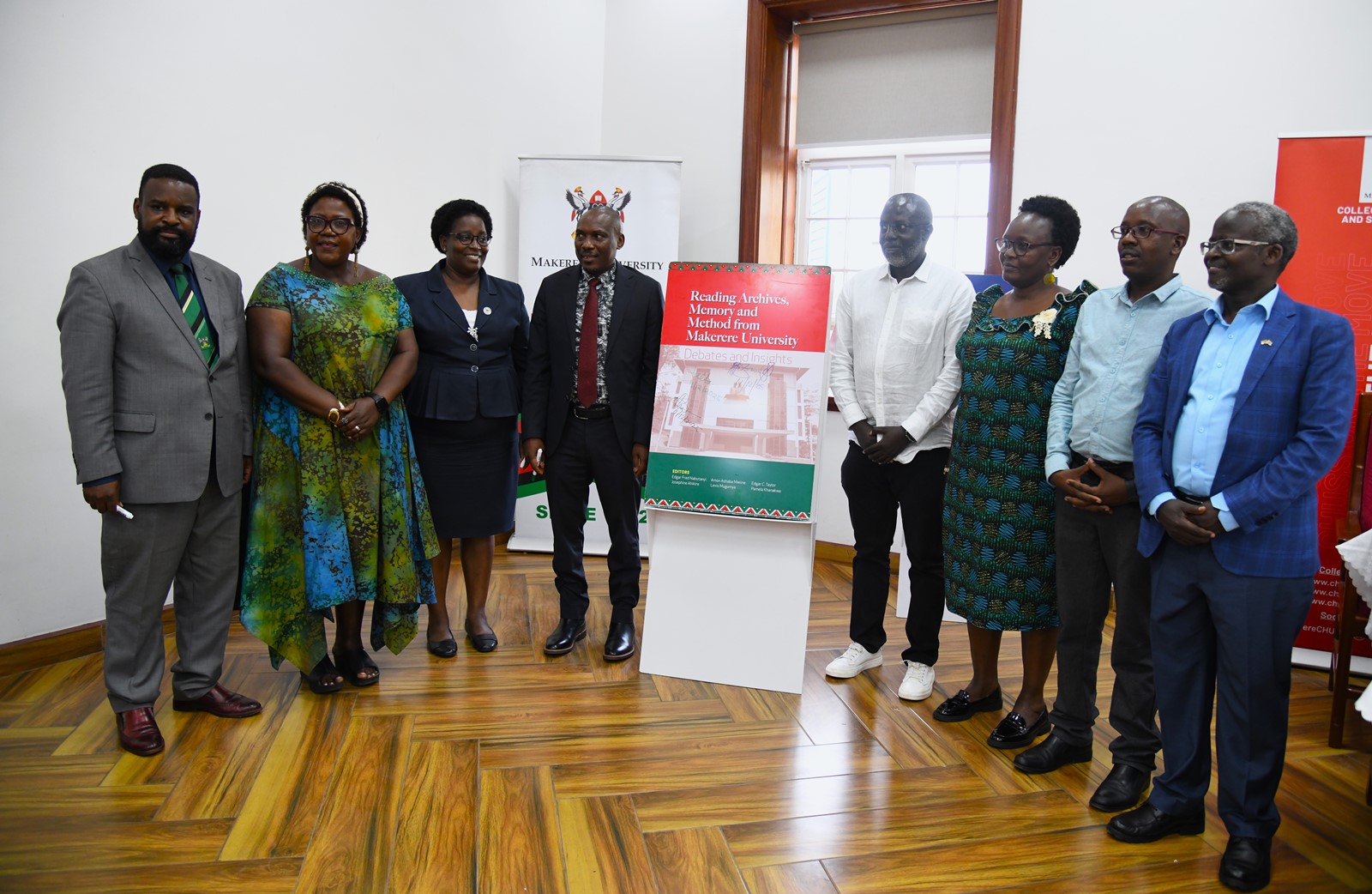
Living with Others: Ethnic Conflict and Pluralism in Uganda’s Greater Kibaale Region (Dr. Jimmy Spire Ssentongo) examines identity, conflict, and co-existence, offering insights toward social justice and peaceful co-living, supported by the African Humanities Foundation.
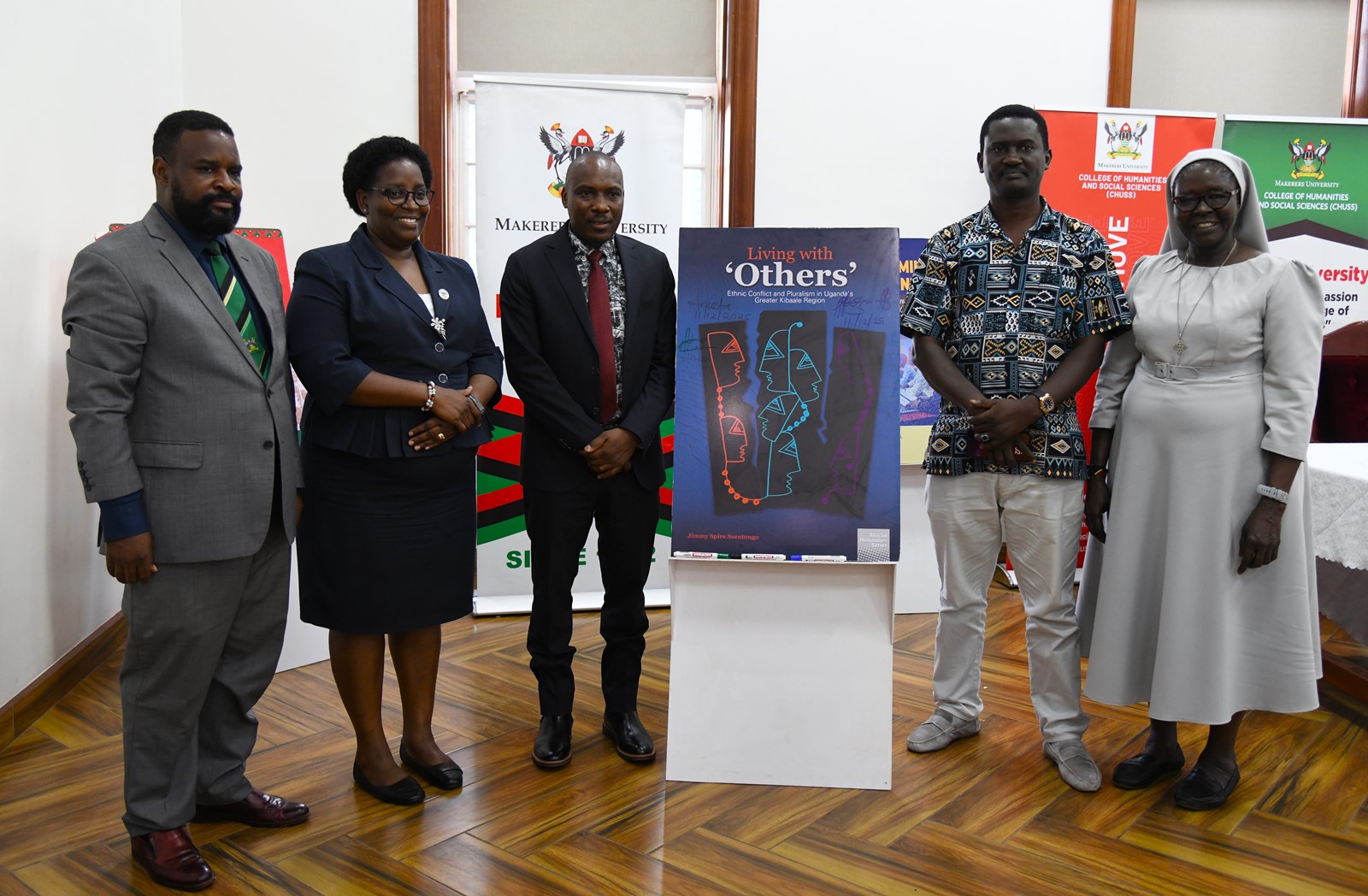
The Makerere Historical Journal (Vol. 6, No. 1, 2025) (Deo Katono, Rebecca Glada, Edgar Taylor, and Christopher Muhoozi.) continues the university’s tradition in historical scholarship, nurturing emerging scholars and deepening debates, published by Makerere University Press.
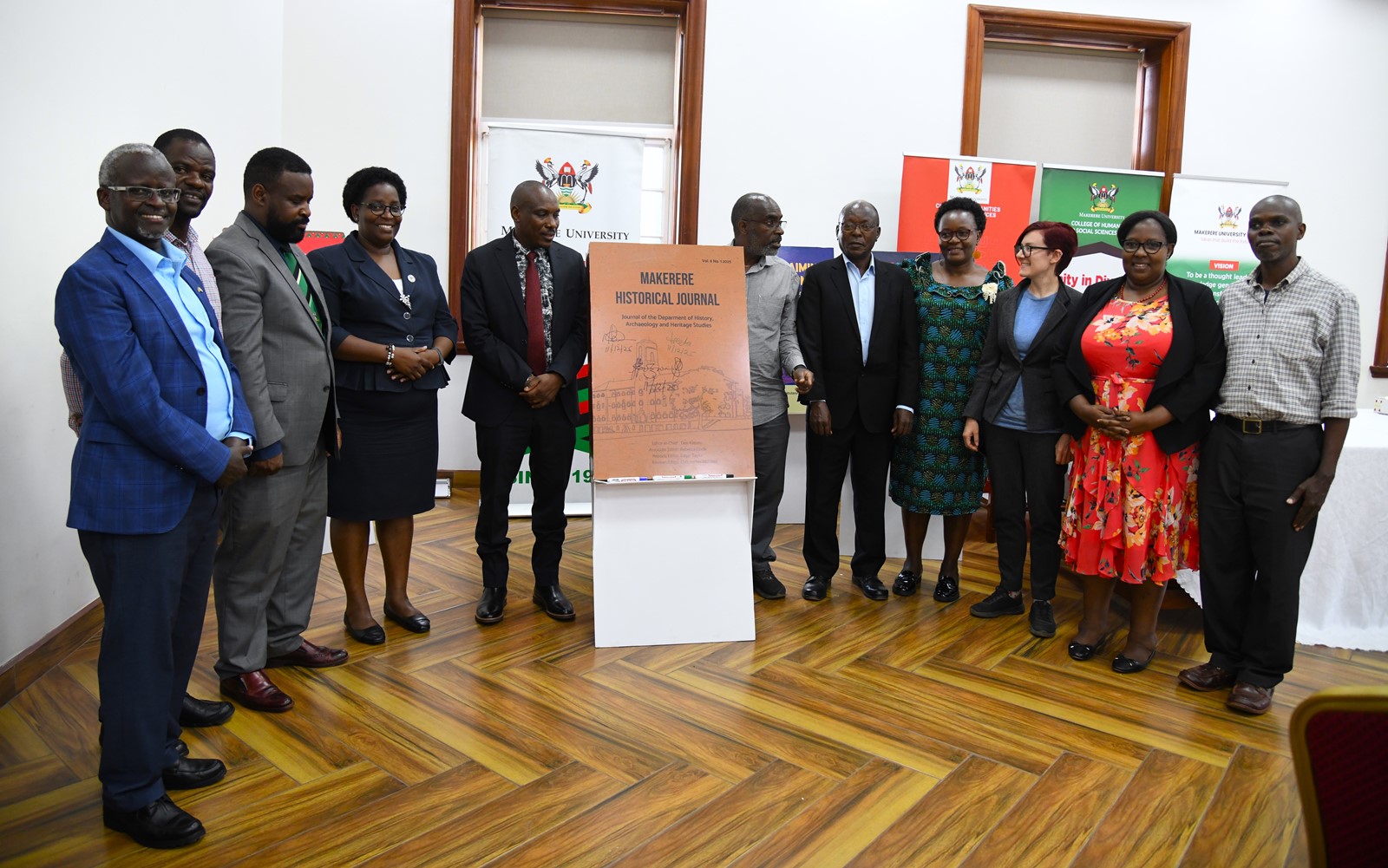
Makerere Journal of Languages, Literature and Communication (Vol. 1, Issue 1) which is the inaugural issue marks a milestone for the School of Languages, Literature and Communication (SLLC), promoting cross-disciplinary dialogue, with support from the Center for Languages and Communication Services and Makerere University Press.
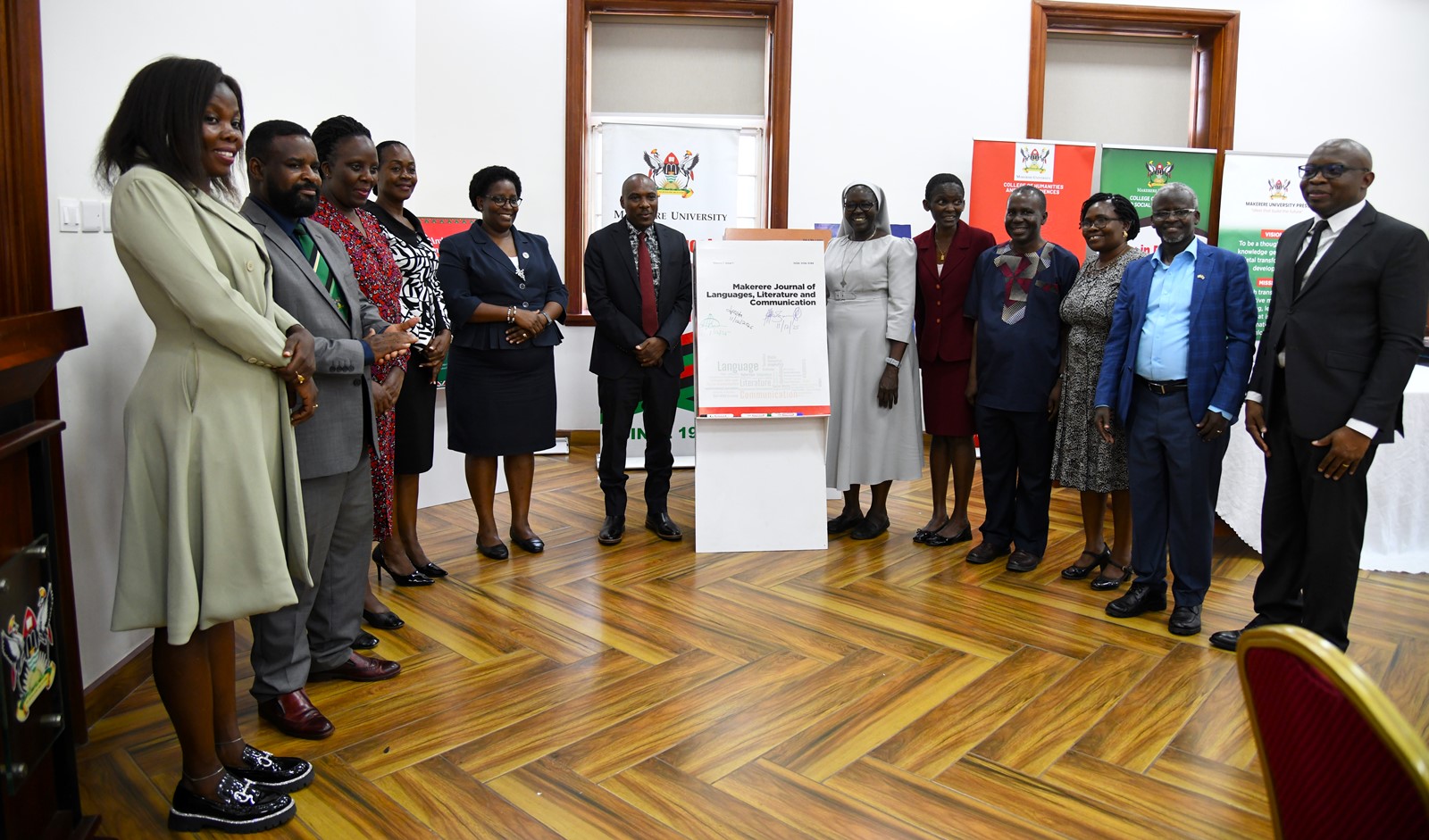
Humanities & Social Sciences
Makerere University Press launches a Groundbreaking Book “Gender, Social Norms and Agency: Perspectives from East Africa,” Sparking a New Era of Collaborative Action for Gender Equality in the Region
Published
2 months agoon
November 20, 2025By
Mak Editor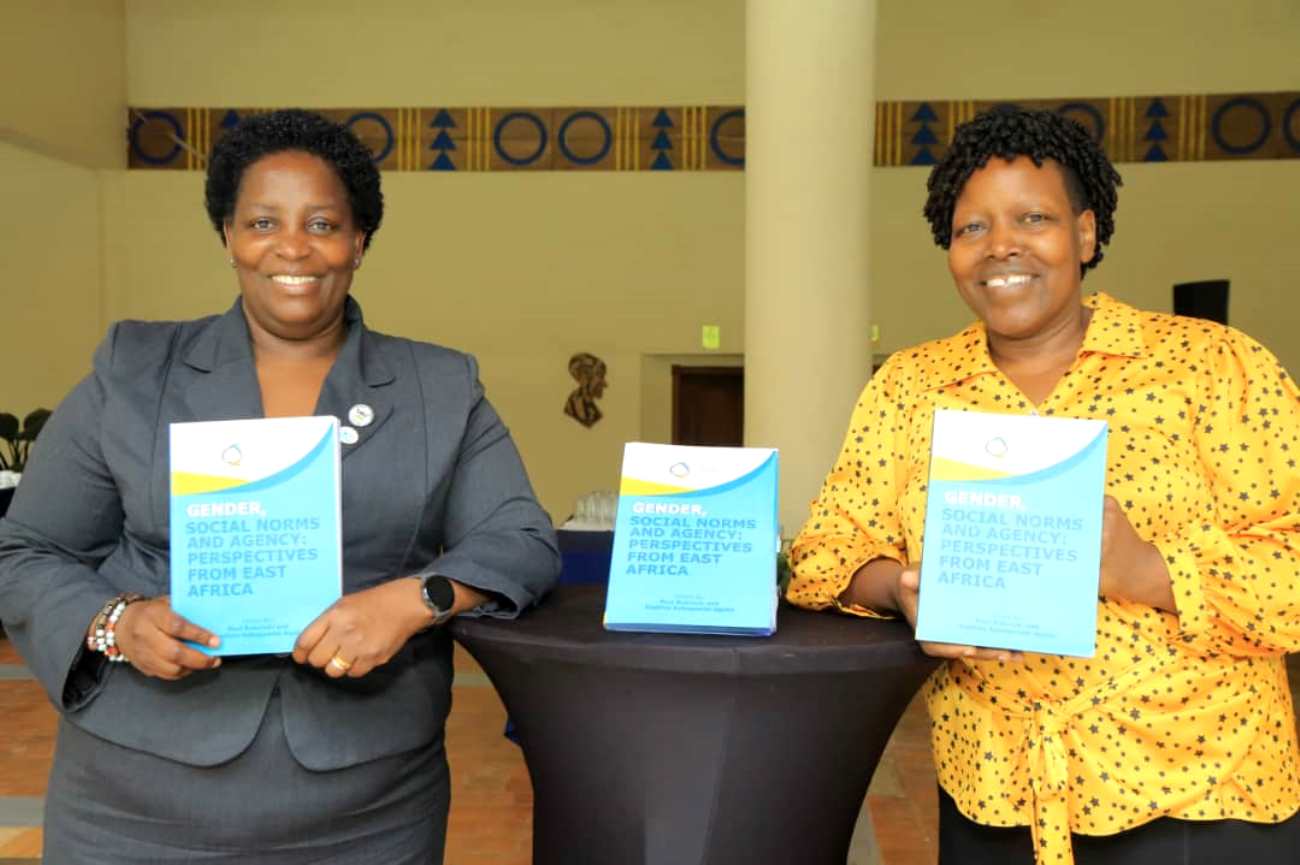
By Wilber Tumutegyereize
Kampala, Uganda — In a significant event that fused academia with practical activism, Makerere University Press launched the highly anticipated book “Gender, Social Norms and Agency: Perspectives from East Africa” at the Golf Course Hotel in Kampala. Edited by Professor Paul Bukuluki and Dr. Daphine Agaba Kabagambe. this book represents a crucial contribution to the field of gender studies, focusing on the complex interplay between gender, social norms, and agency across East Africa.
The book’s launch brought together scholars, development practitioners, and activists who are committed to advancing gender equality, social justice, and transformative change in the region. It marks a pivotal moment in the ongoing dialogue around gender, social norms, and how these deeply rooted cultural forces shape the experiences of women, men, and marginalized groups in East Africa.
Mr. Aloysius Nyombi, the Technical Advisor, Social Norms. As a key partner in the creation of the book set the tone for the evening by celebrating the collaborative efforts that brought together a diverse group of researchers and practitioners.
“The launch of this book is a celebration of collaboration,” Nyombi stated. “We are here not just to celebrate an academic achievement, but also to honor the work that’s being done in communities across East Africa. What we are doing on the ground must be documented, and it must be accessible to all.”
Nyombi’s comments highlighted the importance of bridging the gap between research and real-world application, underscoring the value of such academic works for informing policy and driving social change. His emphasis on collaboration between researchers, NGOs, and practitioners reinforced the book’s focus on addressing gender-related issues in a tangible and actionable way.
The Power of Local Expertise:
Dr. Ruth Nsibirano, The Director of the Institute of Gender and Development Studies at Makerere University spoke passionately about the significance of the book in deepening the understanding of gender norms within the East African context. She stressed the need for locally relevant research that reflects the lived experiences of communities.
“This book is not just an academic publication; it is a tool for social change,” Dr. Nsibirano said. “It provides us with a critical lens through which we can examine the norms and practices that continue to shape gender roles in our societies. Understanding these dynamics is crucial for making lasting change.”
Dr. Nsibirano emphasized the importance of the book’s multidisciplinary approach, which brings together academic scholars, field practitioners, and activists to create a well-rounded narrative. Her reflections resonated deeply with the audience, who were united in their shared commitment to gender equality.
A Vision for Collaborative Academia
Professor Helen Nambalirwa Nkabala, the Principal of Makerere University’s College of Humanities and Social Sciences underscored the importance of institutional support and collaboration in academic publishing. Representing the Chief Guest, Professor Sarah Ssali, the First Deputy Vice Chancellor (Academic Affairs) at Makerere University, Professor Nkabala conveyed her pride in the academic community’s collective effort to produce the book.
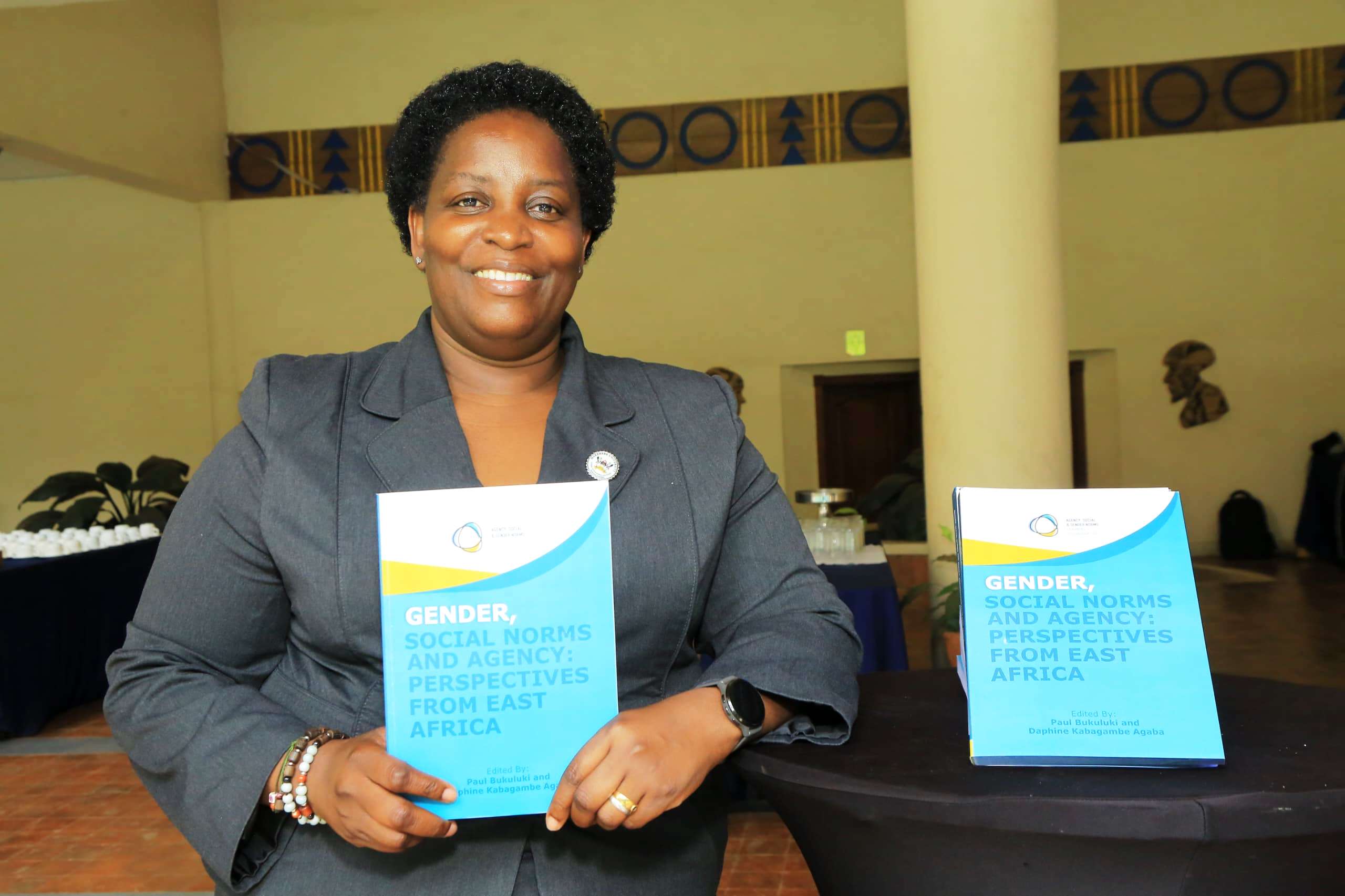
“It is an honor to be part of this project, which is a true reflection of the collaborative spirit at Makerere University,” Professor Nkabala said. “This book is a testament to the commitment of our researchers, students, and faculty members who are dedicated to addressing the most pressing social issues of our time.”
Professor Nkabala spoke about the increasing urgency to address issues such as unpaid care work, child marriage, and violence against women, topics that the book explores in depth. She praised the book for its holistic approach, combining theory and practice to offer insights that can be directly applied to social and policy interventions.
“The power of this book lies in its ability to challenge harmful gender norms and provide solutions that can transform societies,” she said.
The book’s co-editors, Dr. Daphine Agaba Kabagambe and Professor Paul Bukuluki, who shared the journey of bringing the book to fruition, expressed their deep commitment to shedding light on the social norms that influence gender behavior in East Africa and how such norms can be transformed for greater gender equality.
Dr. Agaba Kabagambe, a senior lecturer at Makerere University, reflected on the importance of examining how social norms in East Africa influence the lives of women, men, and children. She noted that while much of the discourse around gender focuses on laws and policies, there is still a significant gap in understanding how entrenched norms and cultural practices impact the real-life experiences of individuals.
“We wanted this book to serve as both a scholarly resource and a practical guide for those working to change societal behaviors,” Dr. Agaba Kabagambe explained. “The research inside this book offers a deeper understanding of how gender and social norms shape our world, and it provides us with tools to challenge and change those norms.”
Professor Bukuluki, expanded on the book’s focus on action-oriented research. He noted that while the book provides theoretical insights into gender norms and agency, it also includes valuable contributions from field practitioners working in communities across East Africa. These chapters are crucial for bridging the gap between academia and the grassroots work being done to promote gender equality.
“This book reflects the intersection between theory and practice,” Professor Bukuluki explained. “We wanted to include not only the academic perspective but also the voices of those who are working in the field, dealing with the realities of gender inequality on a daily basis.”
The book is structured around 13 chapters that explore themes such as unpaid care work, the impact of technology on gender roles, and communication about sexuality. These chapters bring together academic theory with practical insights from development practitioners and community leaders across Uganda, Tanzania, Kenya, and beyond.
The Role of Makerere University Press
Mr. Elvis Lubanga, representing Dr. William Tayebwa, the Chief Managing Editor of Makerere University Press, highlighted the press’s pivotal role in bringing the book to life. Lubanga’s remarks underscored the importance of publishing local research that meets international academic standards while remaining grounded in the realities of East African communities.
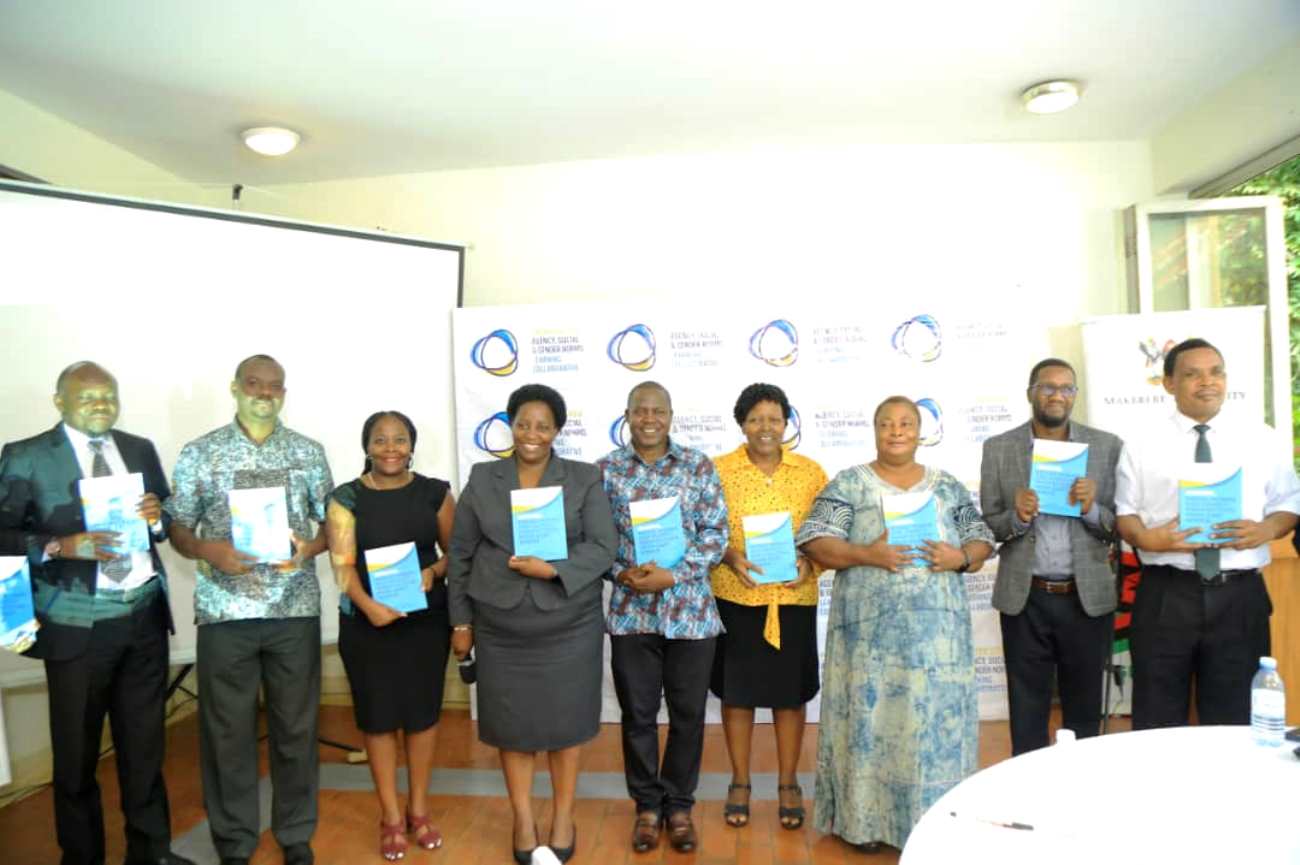
“At Makerere University Press, we take pride in producing works that reflect the unique challenges and opportunities of the Global South,” Lubanga said. “This book is not just an academic text; it is an important contribution to the ongoing conversation about gender equality and social transformation.”
Lubanga emphasized the press’s commitment to ensuring that local knowledge and research are accessible to global audiences, while also supporting the work of local scholars. He noted that the book is available both in print and online, making it accessible to readers across East Africa and the wider world.
Dr. Aramanzan Madanda representing Mr. Apolo Gabazira the Country Director of CARE International Uganda, shared the organization’s appreciation for the book, noting how it aligns with CARE’s mission to empower women and girls and address gender-based inequalities in East Africa.
“CARE Uganda has long been committed to addressing the root causes of gender inequality,” Dr. Madanda said. “This book is a crucial tool for organizations like ours, helping us better understand the social norms that perpetuate gender-based violence and other forms of inequality.”
Mr. Yiga Deo, Executive Director of the Impact and Innovation Development Center (IIDC), highlighted the importance of bridging the gap between academic research and community action, emphasizing that sustainable gender equality requires locally informed, innovative approaches. Mr. Deo urged collaboration between universities, civil society, and policymakers to ensure that research informs real-world interventions. He called for a reimagining of development practices that center on culture as a foundation for progress, ensuring that knowledge translates into lasting, transformative change.
Through the launch of “Gender, Social Norms and Agency: Perspectives from East Africa”, Makerere University Press has provided a much-needed resource that will inspire further research, action, and policy reform. The book’s insights will not only enrich the academic community but also inform the work of development practitioners, policymakers, and activists who are striving to create a more just and equal East Africa.
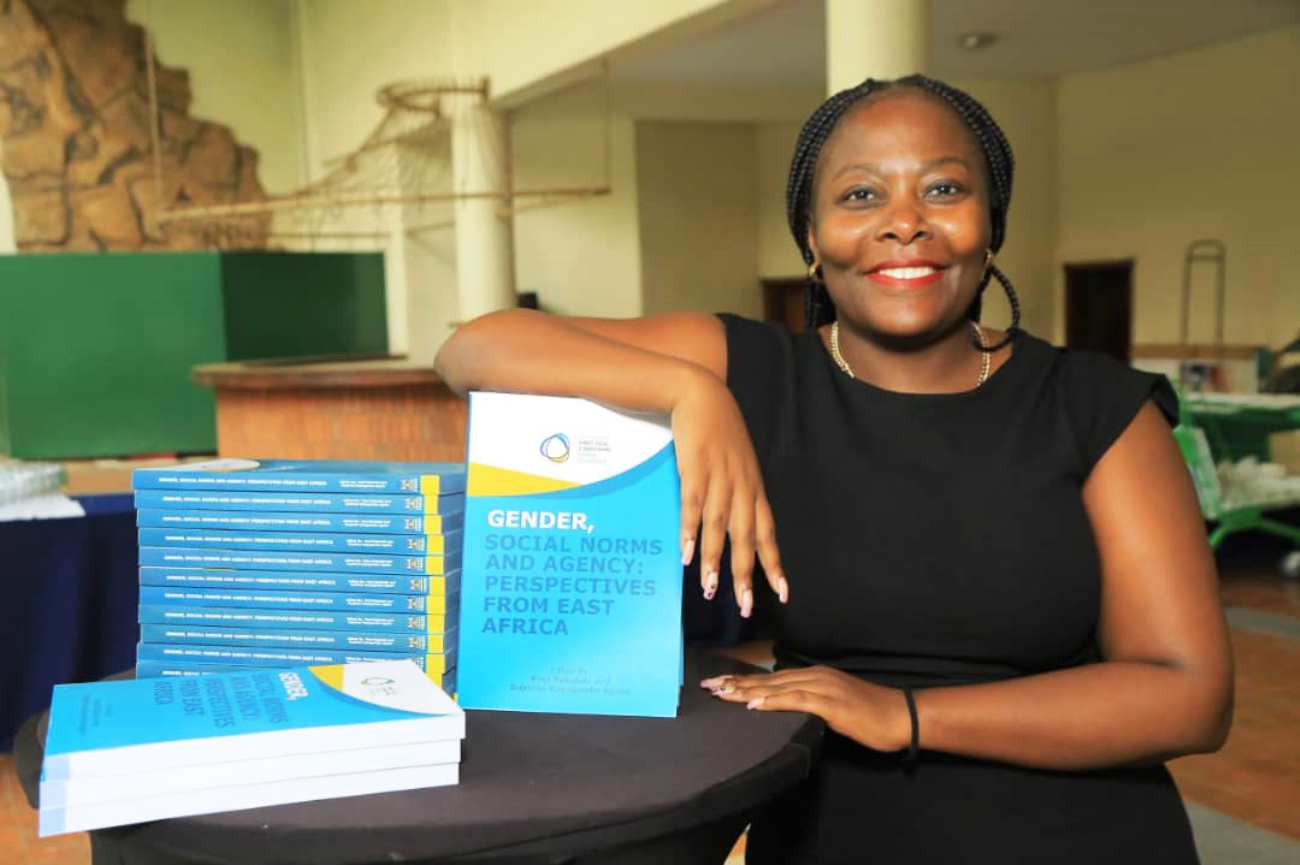
As Dr. Daphine Agaba Kabagambe aptly stated, the book is a “bridge between theory and practice,” and it will undoubtedly be an essential resource for anyone committed to understanding and challenging the social norms that shape gendered behavior across East Africa.
The launch of “Gender, Social Norms and Agency: Perspectives from East Africa” is a landmark moment in the ongoing quest for gender equality and social justice in the region. With contributions from leading scholars, development practitioners, and gender experts, this book provides an invaluable resource for those seeking to understand and transform the gendered social norms that impact millions of lives in East Africa. The collaboration betweenMakerere University Press, scholars, and community-based organizations highlights the importance of a unified effort to address the region’s most pressing gender-related issues.
Through its innovative approach, combining theory and practice, this book promises to be a catalyst for change in the fight for gender equality and social transformation across East Africa.
Humanities & Social Sciences
Hon. Mao Urges African States to Institutionalise Accountability in Governance
Published
2 months agoon
November 20, 2025By
Jane Anyango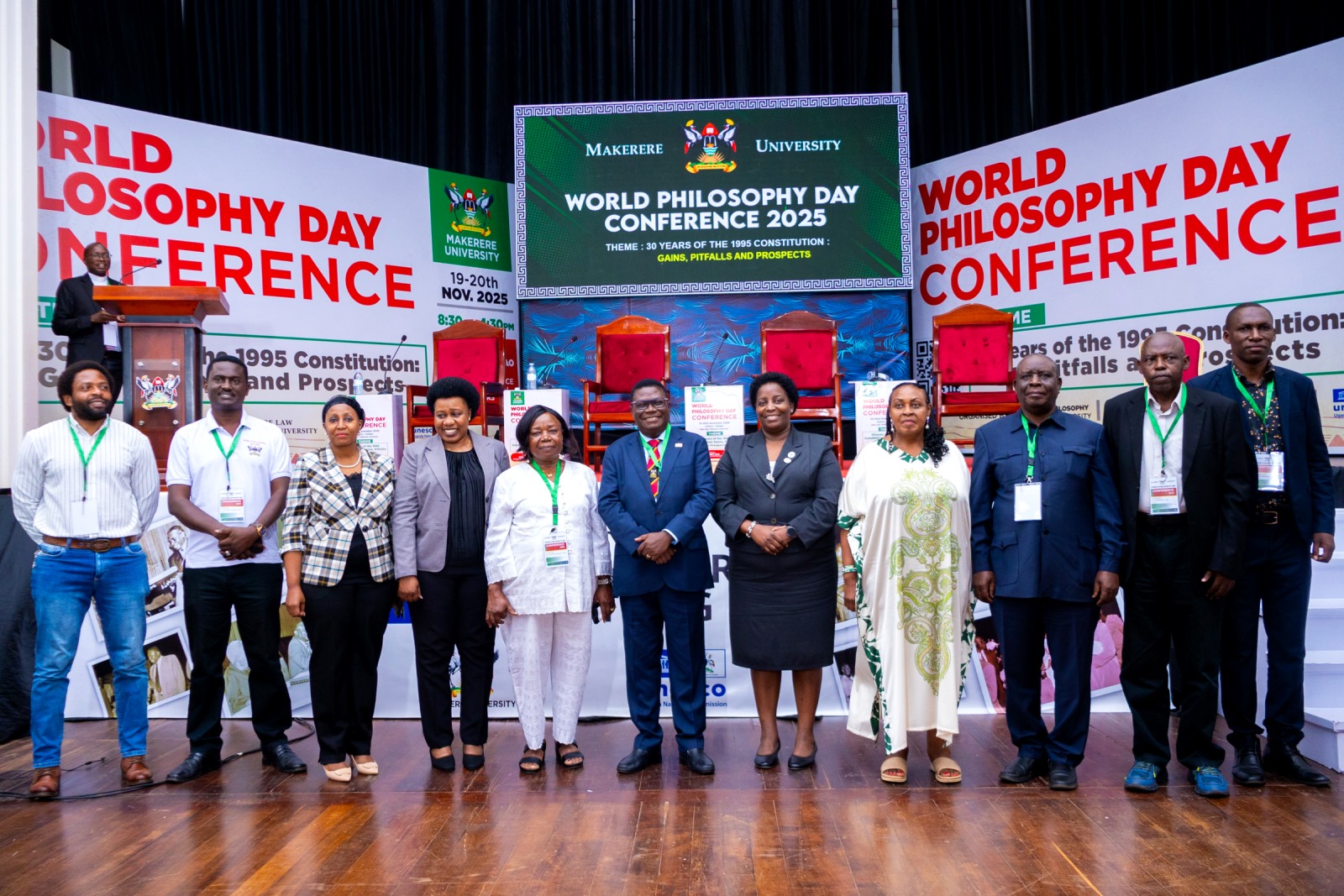
By Jane Anyango and Zaam Ssali
Minister of Justice and Constitutional Affairs, Hon. Nobert Mao, has urged Uganda and other African countries to adopt governance systems that firmly entrench accountability and civil liberties at all levels of leadership.
Mao made the call on Wednesday while presiding as Chief Guest at the World Philosophy Day celebrations held at Makerere University. The two-day conference, running from 19th–20th November 2025, was organized by the Department of Philosophy in collaboration with the School of Law, UNESCO and the Konrad Adenauer Stiftung under the theme: “30 Years of the 1995 Constitution: Gains, Pitfalls and Prospects.”
The event, hosted in a hybrid format at the Makerere Main Hall, featured academic papers, screenings of Constituent Assembly debates, panel sessions with drafters of the Constitution, creative performances and exhibitions on Uganda’s constitution-making journey.
Mao warned that Africa’s current political systems risk turning leadership terms into ritualistic cycles where leaders serve five-year mandates without meaningful public accountability. He argued that genuine democracy must be tied to transparent governance, citizen oversight and an environment where civil liberties are respected.
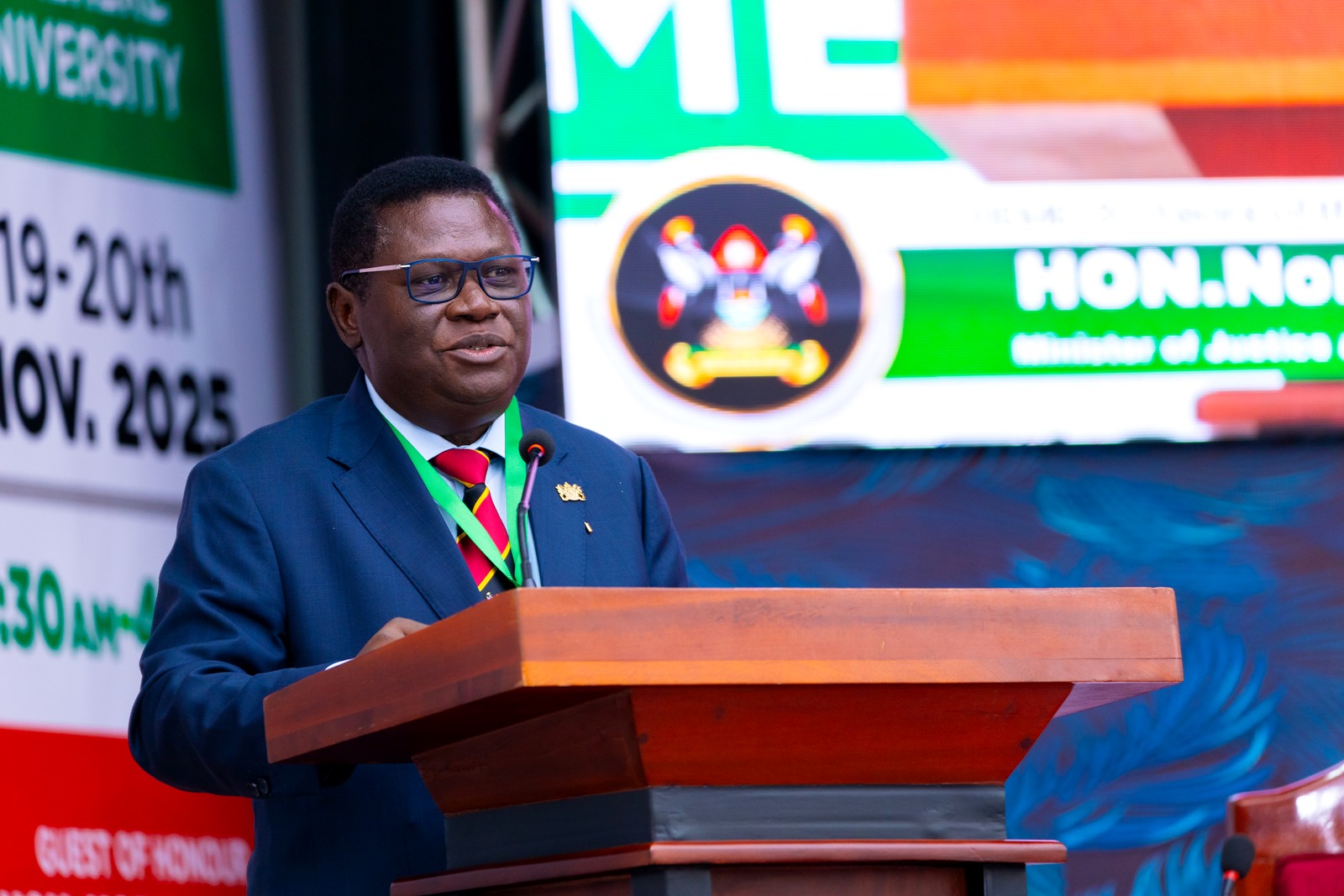
“We need to balance accountability and civil liberties with national unity and stability,” Mao said, dismissing claims that demanding civil liberties threatens peace. “That is a false dichotomy. A government can be both accountable and stable.”
He stressed that Ugandans must remain free to speak openly about governance failures, injustices and past atrocities, noting that national healing requires courage to confront uncomfortable truths. He also cautioned political actors against manipulative tribal politics, calling for a shift toward consensual and tolerant political engagement.
Mao challenged universities to take the lead in deepening political discourse, saying academia must dissect complex national issues and guide public understanding. “If there is one place where citizens should discuss even the most contentious subjects, it is a university,” he said, praising Makerere University for fostering open inquiry.
Reflecting on the 30-year journey of the 1995 Constitution, Mao noted that while it remains “an infant,” it has endured significant tests, including violations of land rights and widespread public concerns about inadequate protection of marginalized groups. However, he welcomed the judiciary’s role in striking down unconstitutional provisions in laws such as the Police Act and the UPDF Act.
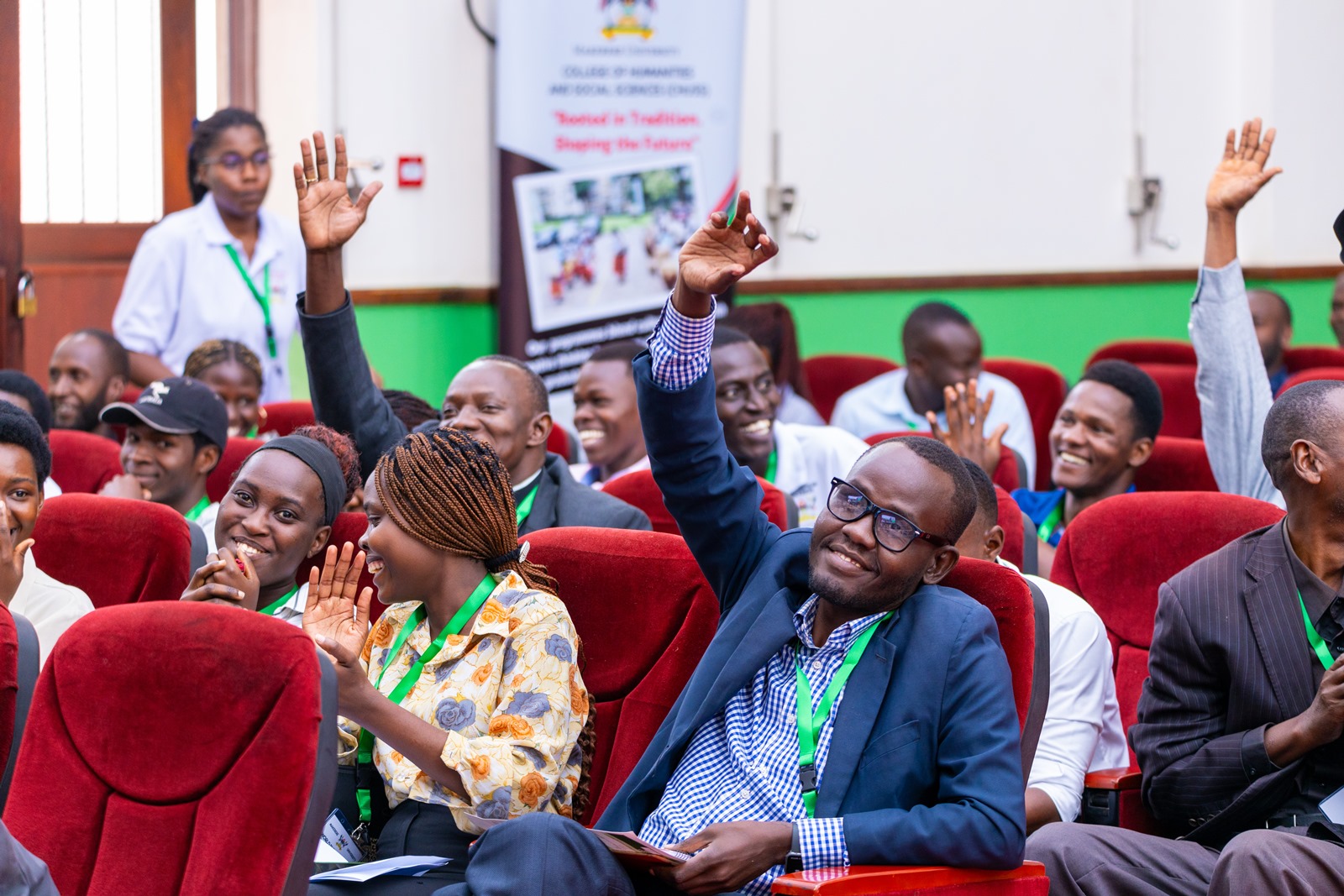
Looking ahead, Mao emphasized that the real test of Uganda’s constitutionalism will be the country’s ability to achieve a peaceful transition of political power — a milestone he described as crucial for democratic maturity.
He concluded by urging citizens to uphold their civic duty in shaping political culture across Uganda and the continent, saying: “Citizens have an obligation to shape the minds of those who participate in politics.”
VC Hails Makerere’s Historic Role in Shaping Uganda’s Constitutional Journey
Delivering the Vice Chancellor’s message on behalf of Prof. Barnabas Nawangwe, Prof. Helen Nambalirwa Nkabala said the university was proud to host the commemoration under the timely theme, “30 Years of the 1995 Constitution: Gains, Pitfalls and Prospects.” She emphasised that the gathering provides an essential platform for citizens, scholars and practitioners to interrogate one of the most significant instruments in Uganda’s governance architecture.
Prof. Nkabala conveyed the Vice Chancellor’s appreciation for the interdisciplinary nature of the conference, which brings together academics, constitutional drafters, philosophers, legal scholars, creatives and the general public for collective reflection. She noted that the 1995 Constitution remains central to Uganda’s political, social and economic landscape, and that 30 years on, the country stands at a critical juncture to assess its relevance and durability.
Highlighting Makerere University’s indispensable role in shaping Uganda’s constitutional evolution, she recalled that several of the nation’s most influential constitutional thinkers were Makerere academics. These include Prof. Frederick Ssempebwa, Dr. Dan Mudoola, Prof. Phares Mutibwa, Mwambusya Ndebesa and Prof. James Kigongo, all of whom made direct contributions to the crafting of the 1995 Constitution. Their involvement, she said, reflects the university’s longstanding commitment to national development, political thought and ethical leadership.

According to the Vice Chancellor, Makerere continues to advance constitutional scholarship through teaching and research in human rights, ethics, political philosophy, critical thinking and governance. The School of Law, Prof. Nkabala noted, remains an anchor in nurturing legal minds through robust constitutional law training, shaping professionals who contribute directly to Uganda’s governance processes.
She thanked UNESCO and the Konrad Adenauer Stiftung for supporting the event and for their continued partnership with Makerere in strengthening philosophical inquiry, democratic governance and academic freedom. The Vice Chancellor also commended the organising committee for assembling a rich programme featuring academic papers, screenings of Constituent Assembly debates, exhibitions and reflective performances.
The Constitution is a Document of Life- Prof. Helen Nkabala
Speaking in her own capacity as Principal of the College of Humanities and Social Sciences (CHUSS), Prof. Nkabala praised the Department of Philosophy for sustaining intellectual vibrance within the college. Describing the department as a “beehive,” she noted that it had already hosted three major reflective events this year—each aimed at deepening national dialogue on governance, ethics and social cohesion.
She reaffirmed the value of the humanities in shaping societies, especially at a time when they face diminishing global attention. She said UNESCO and Konrad Adenauer Stiftung had played an invaluable role in elevating philosophical and humanities-based conversations that influence national decision-making.
Referencing Jawaharlal Nehru, Prof. Nkabala reminded participants that a constitution is “a document of life” whose meaning, strength and sanctity must be tested continually through informed debate, societal engagement and scholarly critique.
She argued that reflecting on 30 years of Uganda’s Constitution requires examining both its successes and limitations, acknowledging that age brings opportunities for wisdom but also exposes emerging challenges.
Prof. Nkabala further applauded Makerere management for providing space and institutional support for critical conversations, noting that such platforms ensure that universities remain central to shaping national identity, governance and collective aspirations.
Academics Must Lead Renewal of Uganda’s Constitution Amid Weakening Checks and Balances – Dr. Zahara Nampewo
Delivering remarks on behalf of the Dean of the School of Law, Deputy Dean Dr. Zahara Nampewo emphasized that constitutions are more than legal documents—they are ideological and political texts that rely on the will of the state for enforcement.

“Constitutions are not just legal documents. They are ideological and political texts. And therefore they are only as strong as the will of states to enforce their provisions,” she said.
She observed that Uganda’s Constitution has undergone numerous amendments that have weakened its original balance of power and checks and balances, undermining guarantees such as equality, democracy, social justice, and progress.
“Today, however, it has undergone the surgical knife a number of times with the result that the balance and distribution of power…have in reality been emasculated,” Dr. Nampewo said.
The Deputy Dean urged scholars to use their expertise to strengthen the Constitution and foster a culture of transformative and progressive constitutionalism. “As academia, we have a social function to contribute to its enforcement and strengthening because the past is never past,” she stated.
She also cited historical lessons, referencing George Washington’s caution on constitutional amendments: “Though Congress had the power to amend the Constitution, this was a power that should be used sparingly and only in the clearest of cases.”
Dr. Nampewo concluded with a call for collective action: “Alone, we are fragile, like butterfly wings. But when we flap those wings all together, that’s when we make a storm.”
Philosophical Reflection Central to Evaluating Uganda’s Constitutional Progress – Dr. Dickson Kanakulya
Dr. Dickson Kanakulya, Head of the Department of Philosophy, highlighted the philosophical and jurisprudential roots of constitutionalism, stressing that the 1995 Constitution emerged to address post-colonial challenges such as poor governance, poverty, and weak social cohesion.
“The 1995 Constitution was made purposely to address the challenges Uganda faced…including issues of bad governance, poverty, poor or weak social cohesion among others,” he said.

Dr. Kanakulya traced constitutional ideas to classical philosophy, noting the ongoing debate between Plato, who argued society should be led by virtuous leaders, and Aristotle, who insisted that good laws shape good citizens. “Aristotle observed that good laws make good men. While Plato argued that good men make good laws and good policies,” he explained.
He described the conference as a platform for critical assessment of the Constitution’s 30-year journey. “This conference gives us the opportunity to make a critical assessment of how far we have gone for the last 30 years. Obviously there are gains, there are challenges, there are prospects and we need to take stock of all these,” he said.
Dr. Kanakulya also highlighted the importance of collaboration, praising UNESCO, the Konrad Adenauer Stiftung, Makerere University leadership, and faculty for supporting the event. “This collaboration between the School of Law, Department of Philosophy and Conrad plus UNESCO is a very welcome growth and development…and we want to thank their generous support, both moral and financial,” he said.
He conveyed the commitment of the School of Liberal and Performing Arts to fostering critical thinking and liberal ideas: “The School of Liberal Performing Arts is committed to shape the minds of men today. We are a liberal school and we allow liberal thinking.”
Constitutional Drafters and Constitutional Assembly Members give context
A Panel Discussion comprised of Prof. Fredrick Ssempebwa, Hon. Hope Mwesigye and Hon. Loice Biira Bwambale provided context to the drafting and promulgation of the 1995 Constitution. Prof. Ssempebwa was a member on the Uganda Constitutional Commission which consulted the population and made proposals for inclusion in the 1995 Constitution. Hon. Mwesigye and Hon. Bwambale were Constitutional Assembly delegates.
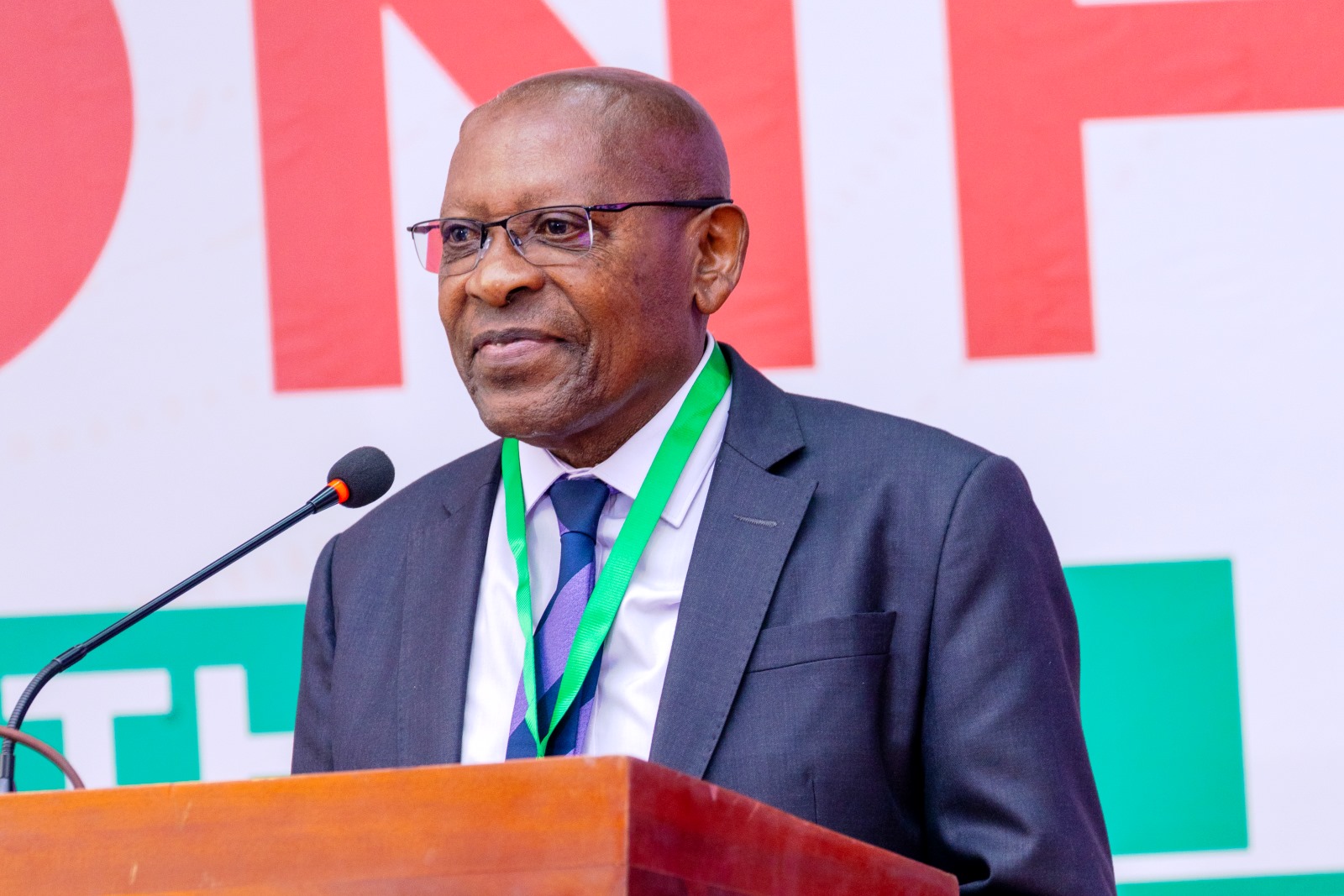
In their presentations and plenary discussion, the following issues were highlighted: 1. The 1995 Constitution was good if it had been implemented in letter and spirit 2. the presidency was given a lot of power, however consensus had been reached that checks and balances had been provided to check the power. Unfortunately, Parliament which was entrusted with an oversight role to implement the checks and balances has not delivered; 3. Whatever is included in a constitution to entrench it, the leadership in government and their values determine whether it works or not; 4. The general population including members of Parliament have not read the constitution, all this arising from poor civic education; 5. The Electoral Commission and Human Rights Commission were tasked to handle Civic Education of the population, this hasn’t been done; 6. Political goodwill from the lowest levels of government is lacking. Goodwill of government determines whether a constitution remains intact without unnecessary amendments. 7. Academia and research institutions should provide critique when things aren’t right.

The World Philosophy Day conference continued over the next days with panel discussions, academic papers, and exhibitions aimed at deepening understanding of Uganda’s constitutional framework and inspiring dialogue on ethical leadership, governance, and societal transformation.
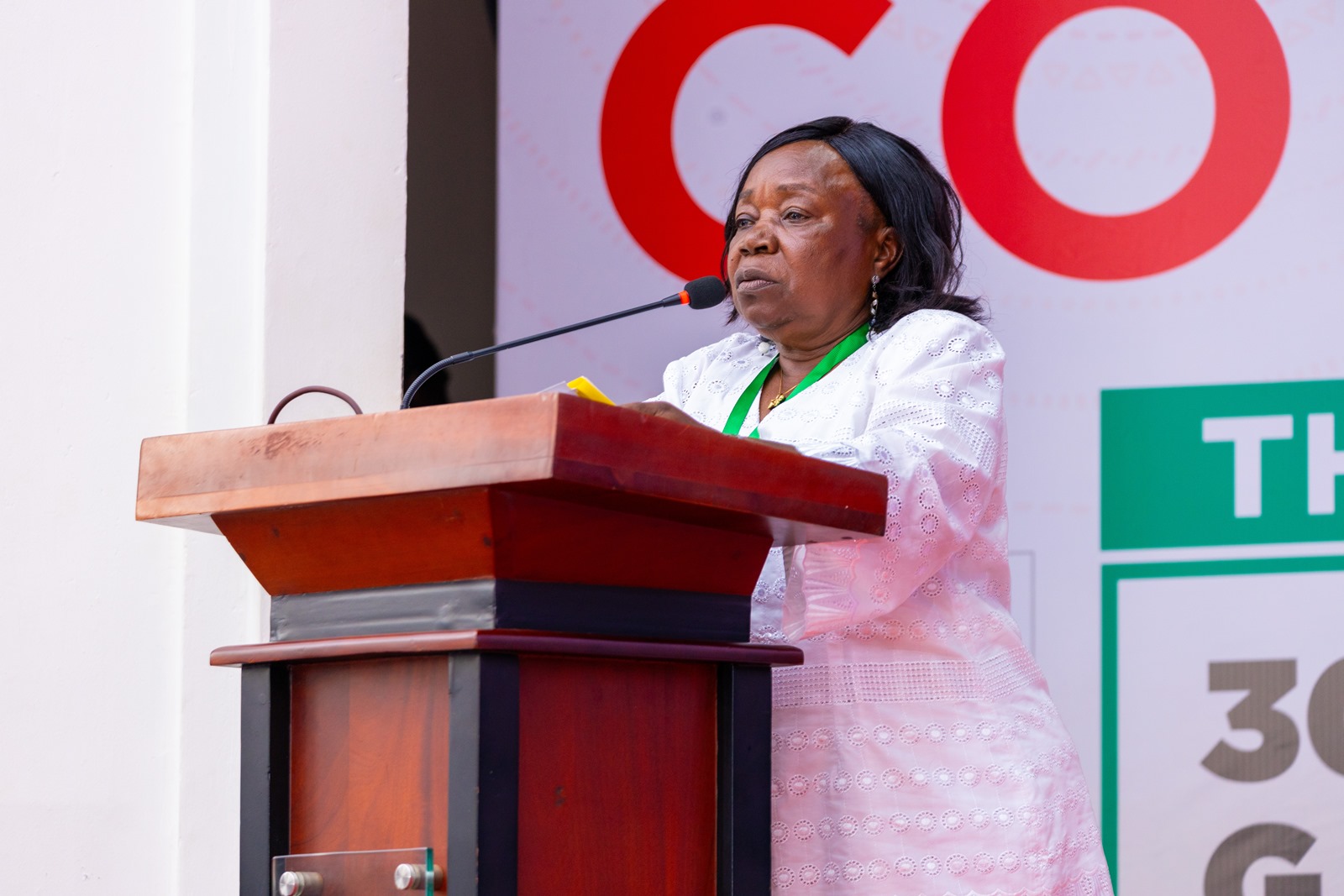
Jane Anyango and Zaam Ssali are Communication Officers for CHUSS & School of Law respectively.
Trending
-
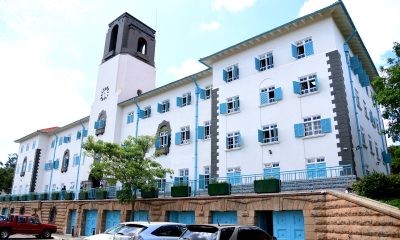
 General1 week ago
General1 week agoAdvert for the Position of the Second Deputy Vice Chancellor
-

 Law2 days ago
Law2 days agoDisclaimer Notice: LLB Pre-Entry Examination
-
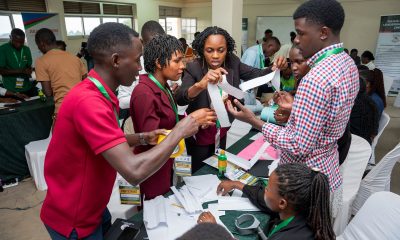
 General1 week ago
General1 week agoUNDP and JNLC hold training in Fort Portal: Participants equipped with skills in Advocacy and Gender Equality, Team Building, Inclusive Leadership, and Financial Literacy
-

 General1 week ago
General1 week agoBreaking the Silence on Digital and Gender-Based Violence: Male Changemakers Lead Makerere University’s Strides for Change
-

 Health1 week ago
Health1 week agoMakCHS Strengthens Internationalization through Strategic Global Partnerships and Mobility
